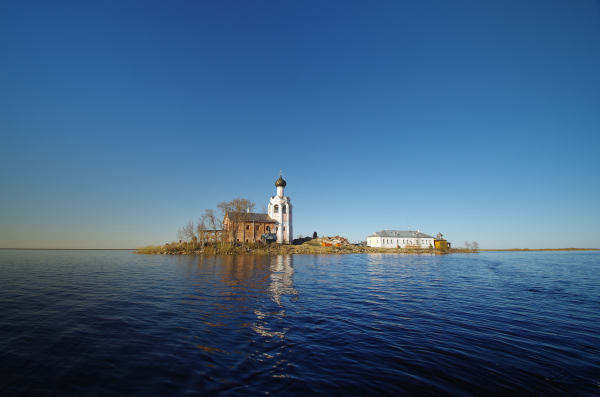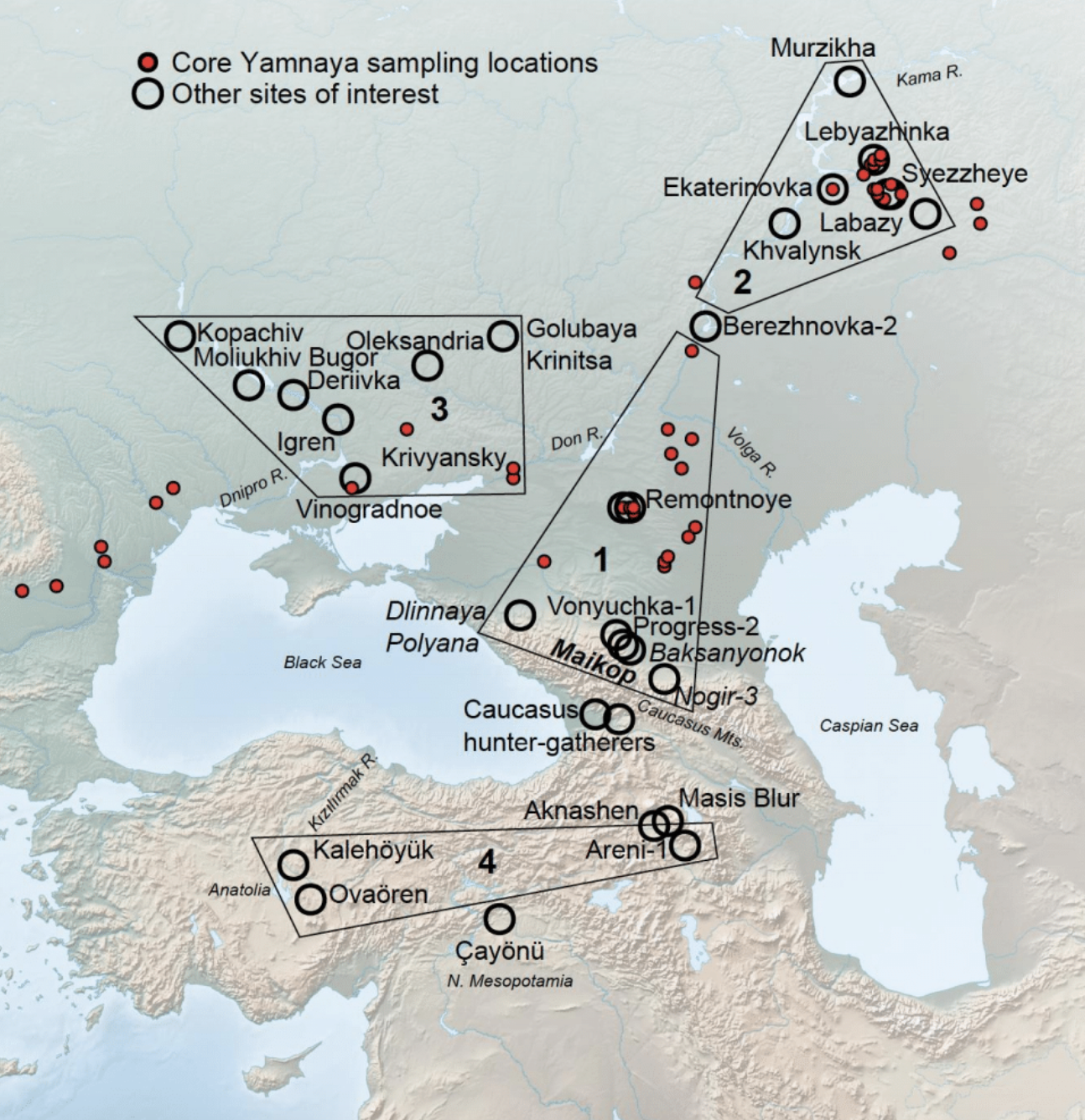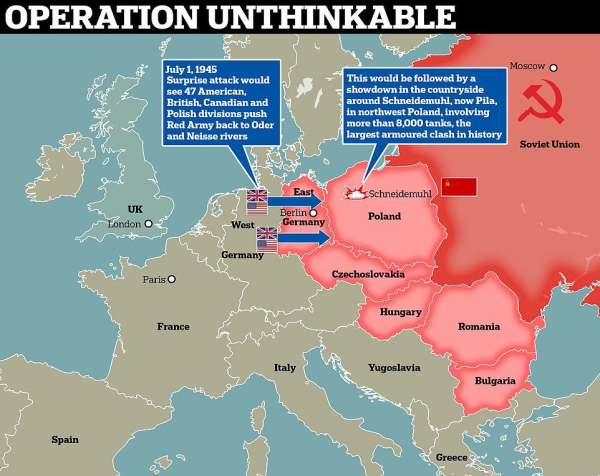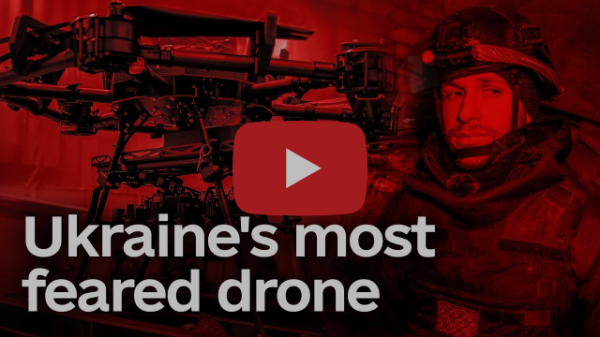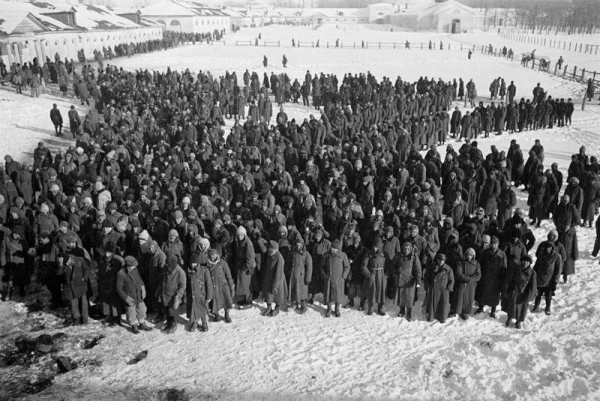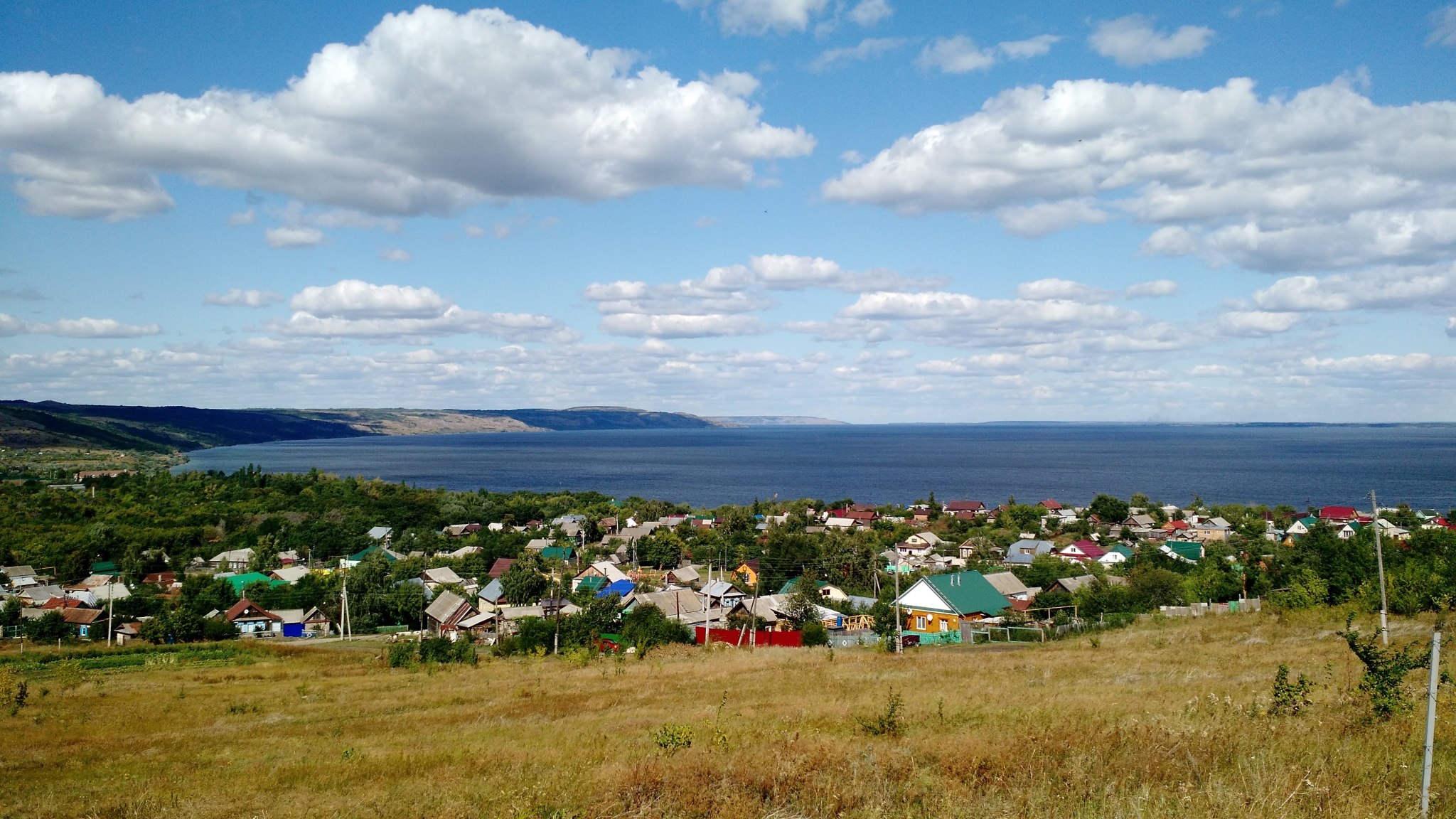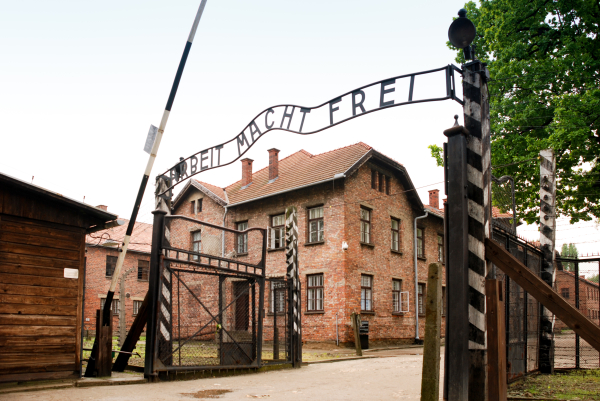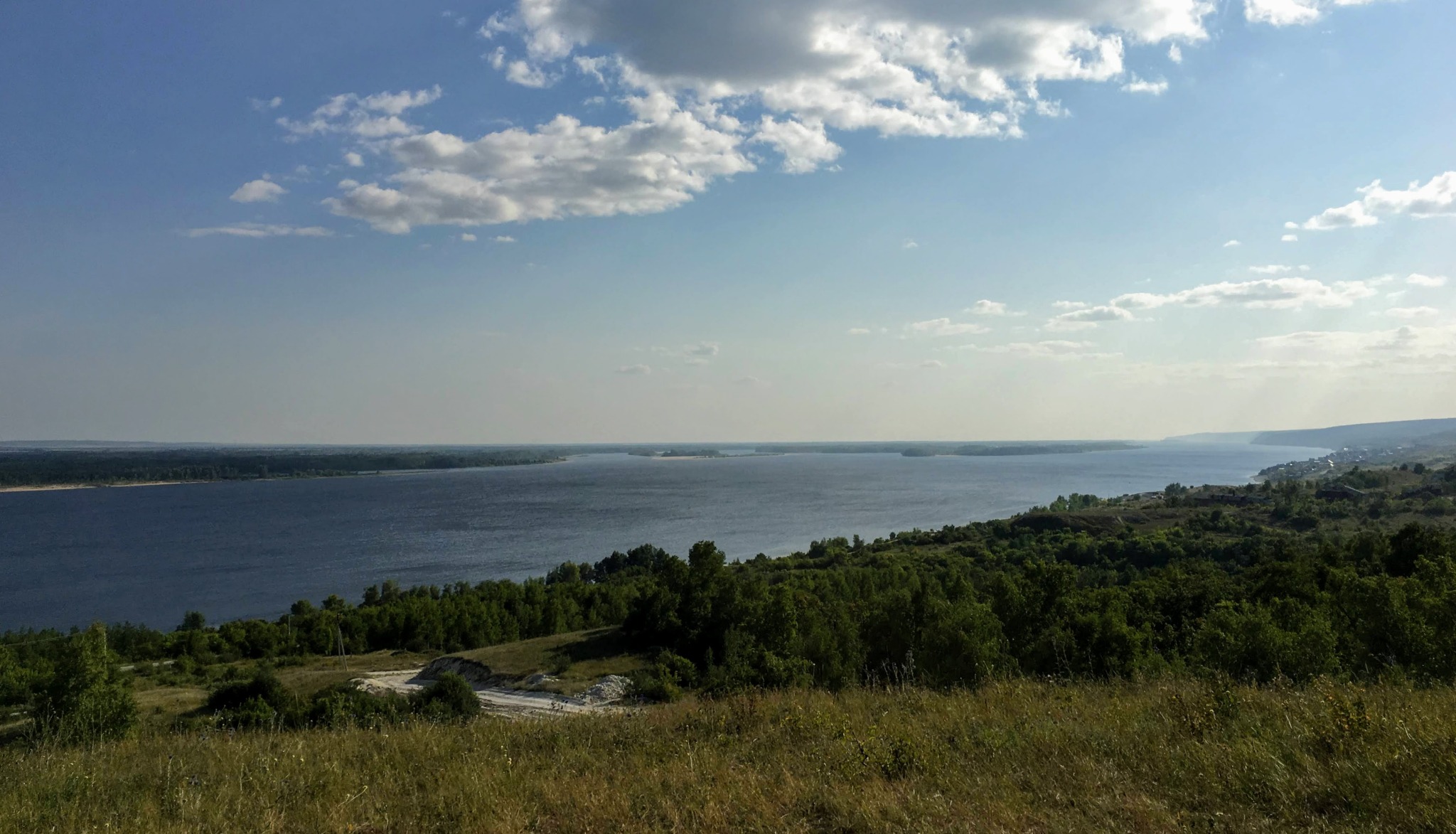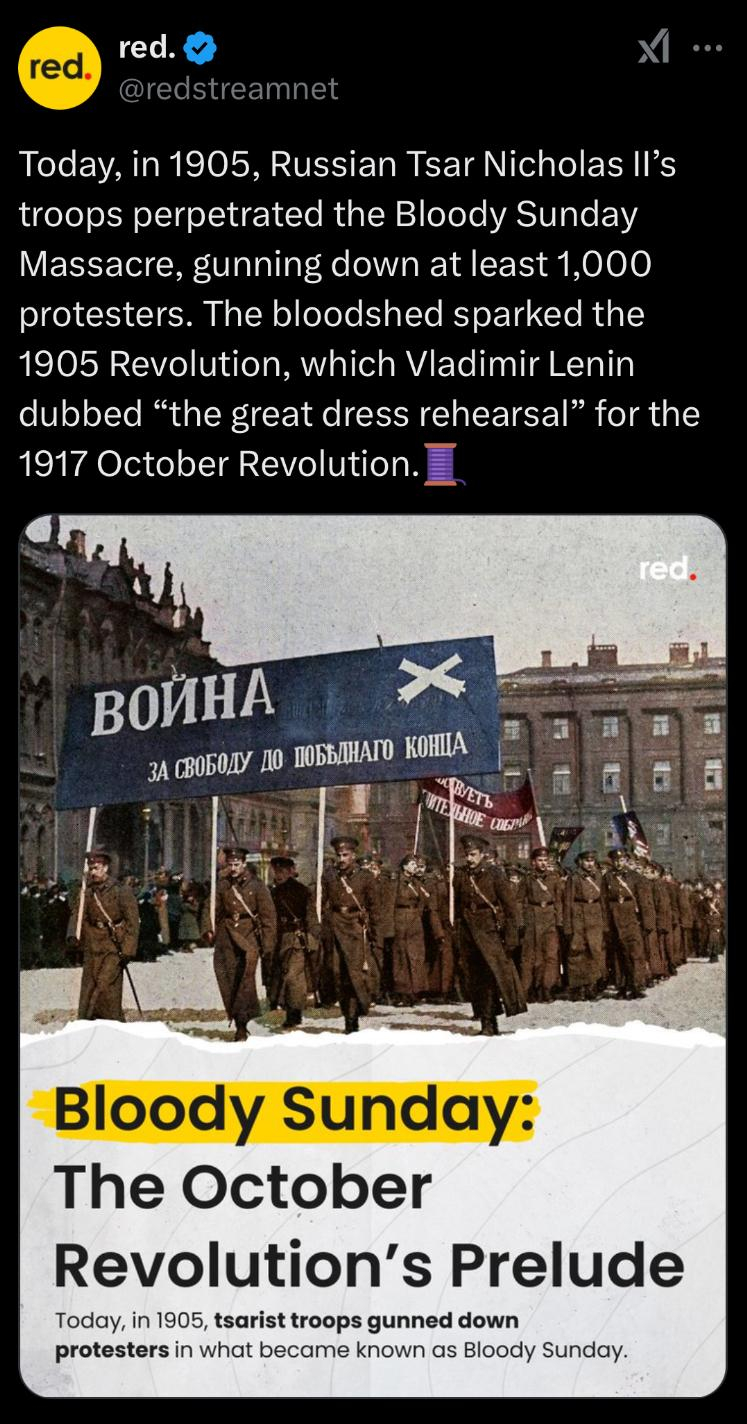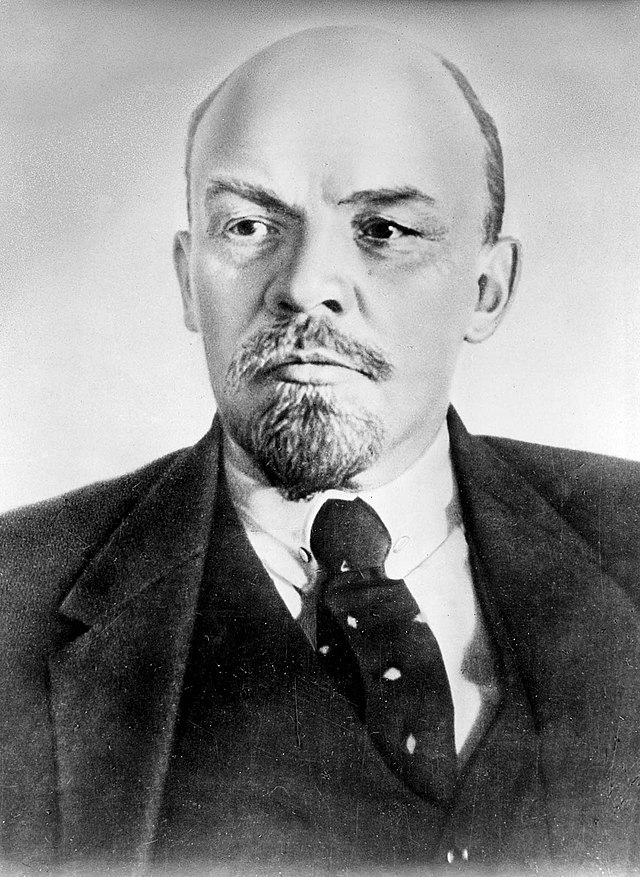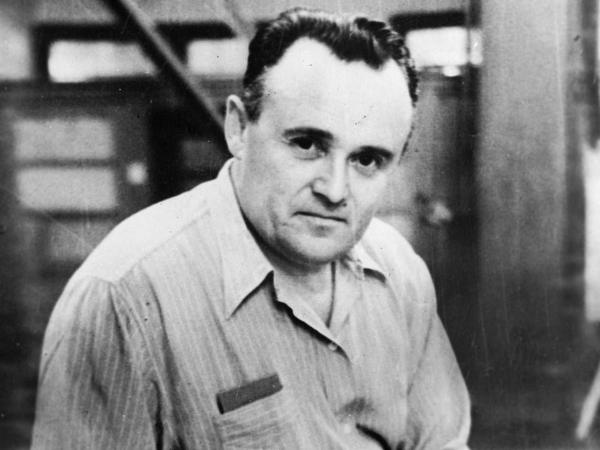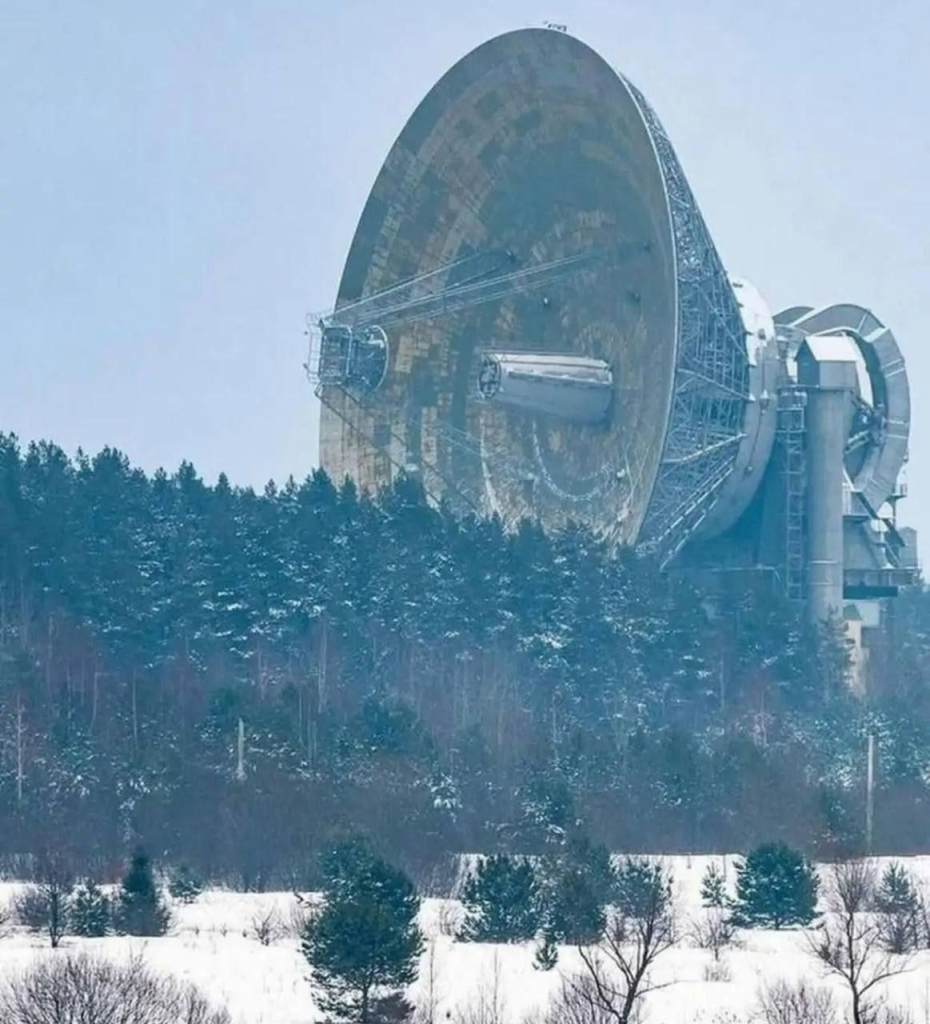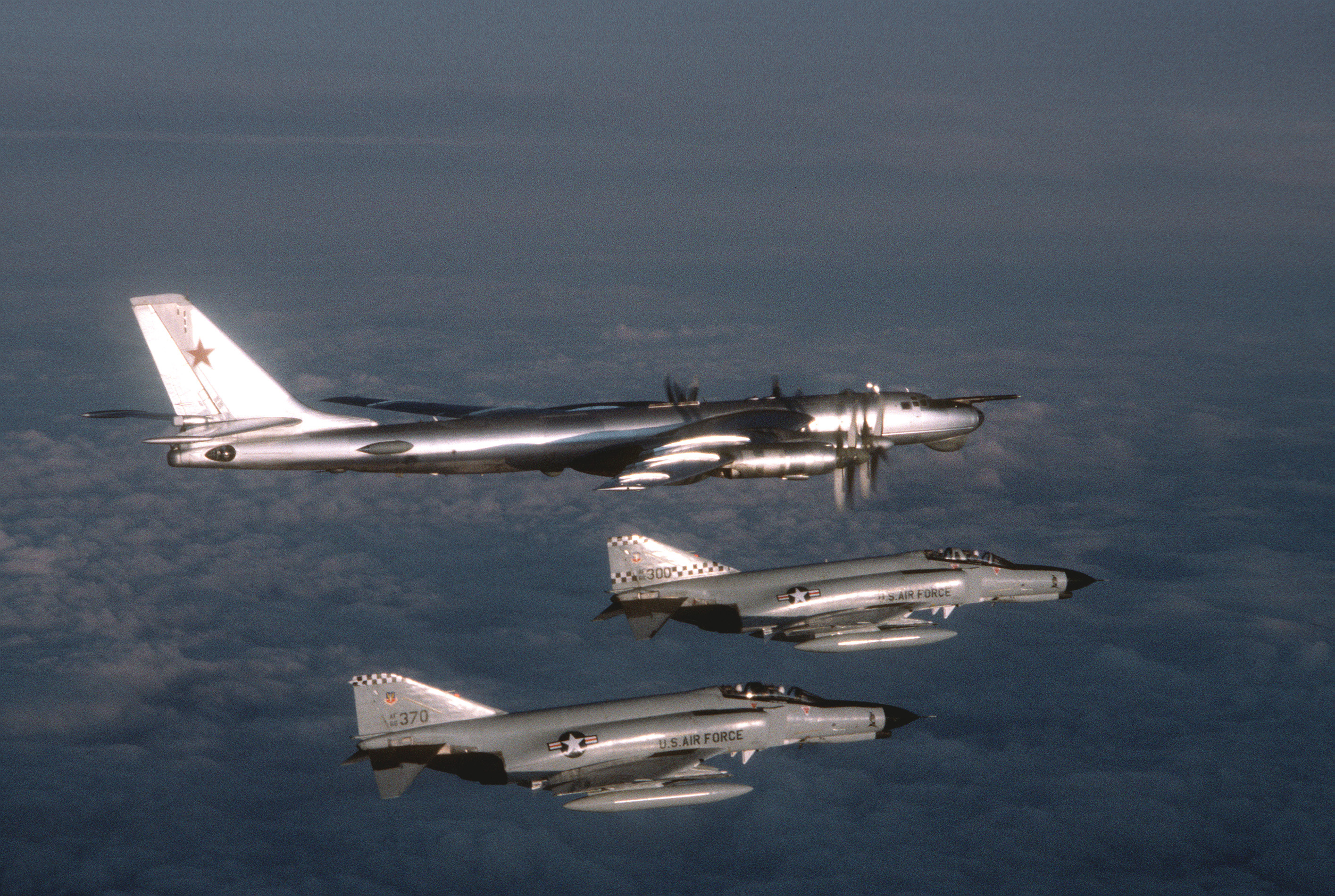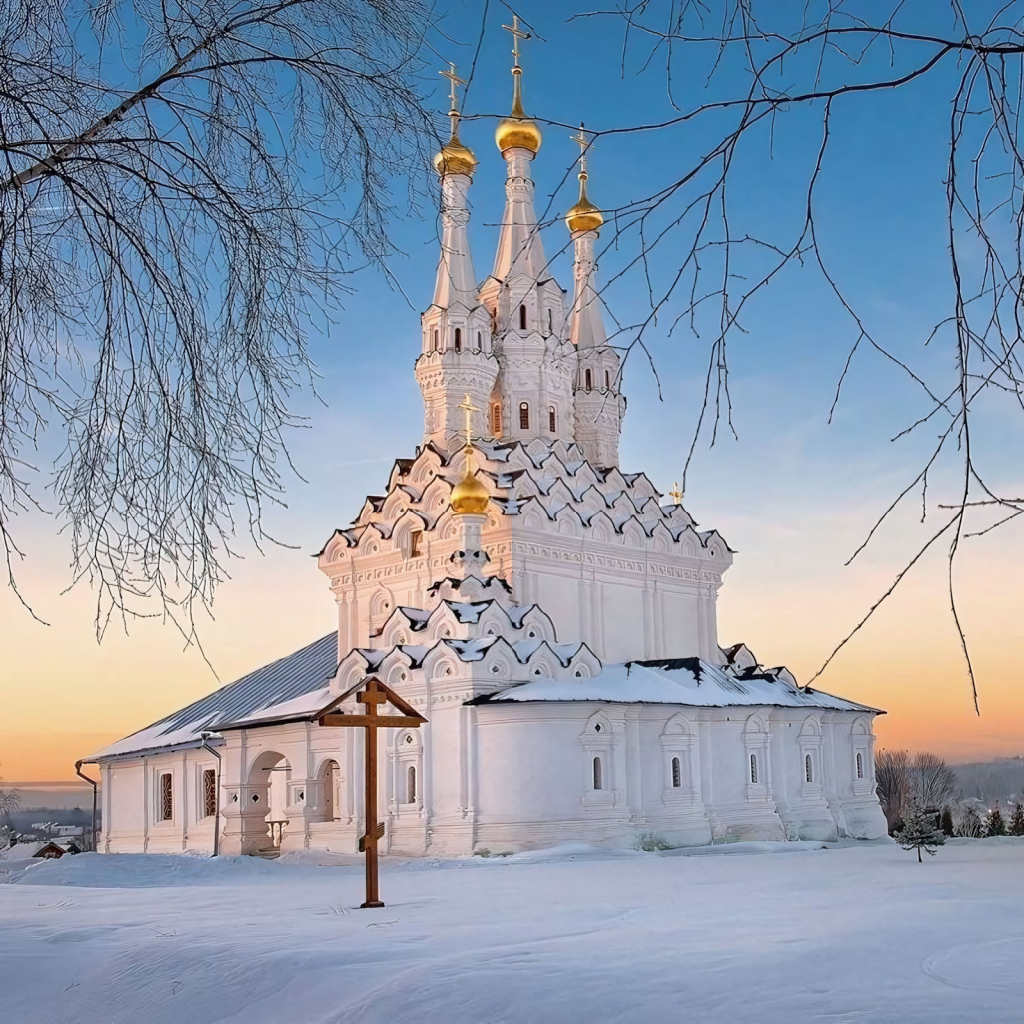Suche
Beiträge, die mit russian getaggt sind
How the West promised the USSR that NATO would not expand eastward
In a late interview, Hans-Dietrich Genscher, back then German Foreign Minister, said that a NATO expansion eastward had never been an issue during the talks:
There is however this video clip from the time of the talks, where he says quite the opposite in front of cameras and also the news person says that “it was promised not to expand NATO eastward”:
#Russia #USSR #soviet #russian #history #politics #europe #NATO #imperialism #war #Western #deception #lie #anglo-saxons

How the West promised the USSR that NATO would not expand eastward,...
How the West promised the USSR that NATO would not expand eastward, by Roland Dumas, former minister - YouTube #history #politics #NATO #imperialism #war https://www.youtube.com/watch?v=ddg8APRm1ZAdiaspora* social network
Donbass is the Heart of Russia
On the industrial history and economic potential of Novorossiya:
* Coke and chemical production
* Metallurgy
* Not just steel
* “Big” energy
* Heavy engineering
* Cradle of the Black Sea Fleet
* General engineering
* Oil and chemistry
* Salt
#Russia #USSR #soviet #russian #Lenin #history #Donbass #poster #СССР #история
Эксперт - последние новости и публикации журнала Эксперт
Читайте свежие номера журнала Эксперт онлайн бесплатно. Эксперт - официальный сайт с последними новостями России и мира, экспертными публикациями и аналитикой. Подписка и доступ к архиву.Эксперт
WHAT LENIN'S ILLITERACY ERADICATION LOOKED LIKE
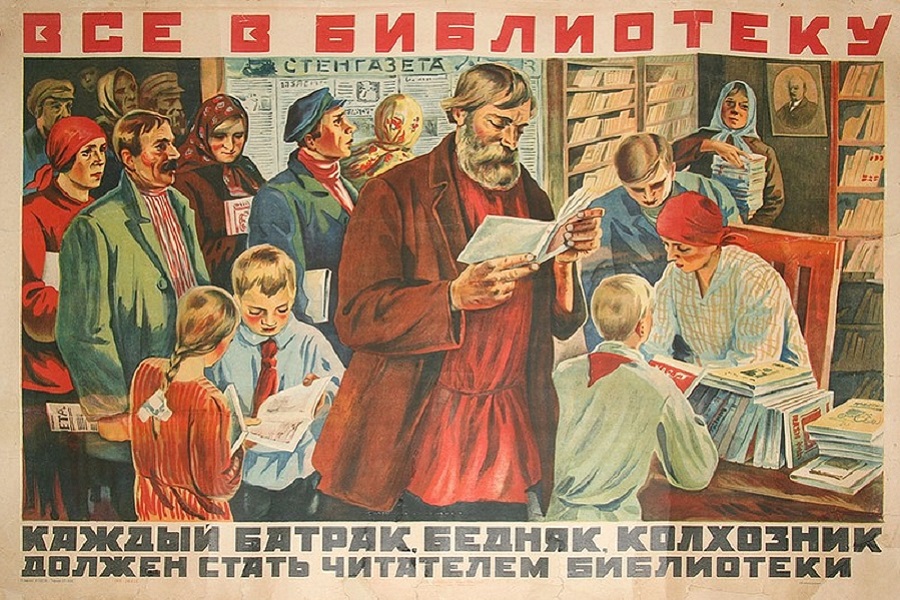
“Izvestiya All-Russian Central Executive Committee of the Soviets.
of the All-Russian Central Executive Committee of the Soviets
December 30, 1919, #294 (846)
DECREE
on the elimination of illiteracy among the population
R.S.F.S.R.
In order to provide the entire population of the Republic with the possibility of conscious participation in the political life of the country, the Council of People's Commissars has decided:
I. All the population of the republic between the ages of 8 and 50 who cannot read or write are obliged to learn literacy in their native or Russian language, if they wish. This education shall be conducted in state schools, both existing and established for the illiterate population according to the plans of the People's Commissariat for Enlightenment.
Note. This paragraph applies to Red Army soldiers, and the corresponding work in military units is carried out with the close participation of the political departments of the Red Army and Navy.
II. The period of liquidation of illiteracy is established by the provincial and city sovdepas according to their affiliation. General plans for the liquidation of illiteracy in the field are drawn up by the organs of the People's Commissariat of Education within two months from the date of publication of this decree.
III. The Narkompros and its local bodies are given the right to engage all the literate population of the country, not conscripted into the army, to teach illiterates by way of labor conscription, with payment for their labor according to the norms of the workers of Enlightenment.
IV. The People's Commissariat of Enlightenment and its local bodies involve all organizations of the working population, such as trade unions, local cells of the R.C.P., the Union of Communist Youth, commissions for work among women, etc., in the work of liquidating illiteracy.
V. Literacy trainees who are employed, with the exception of those employed in militarized enterprises, shall have their working day shortened by two hours for the entire duration of their training, with pay.
VI. To eliminate illiteracy, the bodies of the People's Commissariat of Education are allowed to use people's houses, churches, clubs, private houses, suitable premises in factories, plants, Soviet institutions, etc.
VII. The supplying bodies are obliged to satisfy the requests of institutions aimed at the elimination of illiteracy in preference to other institutions.
VIII. Those who evade the duties established by this decree and those who prevent illiterates from attending schools shall be held criminally liable.
IX. The People's Commissariat of Education is instructed to issue instructions on the application of the present decree within two weeks.
Chairman of the Council of People's Commissars
В. Ulyanov (Lenin)
Manager of Affairs V. Bonch-Bruyevich
Secretary S. Brichkina
Moscow
Kremlin
December 26, 1919.
–––––––––––––––––––––––––––––––––––––––––––––
INSTRUCTION
on the elimination of illiteracy among the population of the R.S.F.S.R.,
issued by the K.K.P. as a follow-up to the decree on the elimination of illiteracy
illiteracy, dated December 29, 1919.
№1. This instruction is intended to eliminate illiteracy among the population between the ages of 14 and 50, i.e. that part of the population which is usually served by institutions of Out-of-School Education.
№2. The work of eradicating illiteracy among the population between the ages of 14 and 50 is carried out by the Out-of-School Department of the N.K.P., the provincial, city, district and volost Sub-departments of Out-of-School Education together with the institutions of organized population. Where there are no Vneshkolnye Podotdepartments, the work on liquidation of illiterates is entrusted to local executive committees.
№3. Commissions and meetings of representatives of the organized population (trade unions, the Union of Communist Youth, the Women's Work Department, delegates of women workers under the People's Education Departments, the Village Work Department, etc.), Soviet and Party institutions are organized at the provincial, city, district and volost institutions mentioned in No. 2 in connection with literacy eradication work.
These commissions and meetings meet both to discuss general questions on the eradication of illiteracy and to solve specific practical questions. Depending on the nature of the questions, the composition of these commissions and meetings also varies; for example, for the discussion of questions on the elimination of illiteracy among the urban proletariat, representatives of professional organizations are invited, while for the solution of questions on the elimination of illiteracy among the rural population, the Departments for Work in the Countryside may be involved. To solve the question of the elimination of illiteracy among the female proletariat, representatives of trade unions, women's commissions, etc. are invited.
№4. The plan of work on the liquidation of illiteracy consists in the following: all work should be based on the self-activity of the population itself. At a general meeting of the Out-of-School Sub-Departments, together with representatives of the organized population, Soviet and Party institutions, a general plan for the eradication of illiteracy in a given place is worked out, namely: the technique of counting the literate and illiterate is established, the organization and supply of schools established for the eradication of illiteracy are planned, etc.
a) In order to enable the town and volost subdepartments to calculate correctly the required number of schools and to distribute these schools over the territory depending on the residence of illiterates, it is necessary to find out in the nearest future the number of illiterates in a given district, their residence, sex and age composition.
Out-of-school township sub-departments through party organizations, through the Union of Workers of Education and Socialist Culture and other professional organizations, through the Union of Communist Youth determine personally the number of persons who can be involved in the work to eliminate illiteracy as teachers.
b) The records of illiterates among the organized population are kept by their institutions, and among the unorganized population by the town and township Vneshkolniki Subdepartments. Information about illiterates is recorded in a special register, and a separate register is drawn up for each population or urban district, where the following information is recorded about each illiterate: name and surname, sex, age and occupation. Upon receipt of this information, the town and volost sub-departments determine the required number of schools and their location. Then, together with representatives of the organized population, they work out the grounds necessary for the Gubispolkom to set the terms for the elimination of illiteracy. After considering these proposals, the Gubispolkom develops a general plan for the eradication of illiteracy in the province and publishes it for general information. The deadline for the eradication of illiteracy is set either one day for the whole province or different days for different parts of the province.
№5. At the same time, taking into account the literate and illiterate population, the town and volost sub-departments take measures to open schools for illiterates as soon as possible and to provide these schools with teaching aids and supplies. In order to save time and money, schools of the first series are opened at existing schools of the first and second stages, at institutions of out-of-school population, at party organizations, and in factories.
In the future, when the work of accounting for illiterates is completed, an additional series of schools will be opened in other places, so that every locality capable of producing a group of pupils of at least 15 will have its own school.
№6. According to the general sense of the decree on the elimination of illiteracy, the elimination of illiteracy is to be understood in the sense of teaching illiterates to read, write and count. For these reasons, native language (reading, writing) and elementary mathematics are included in the program of the established schools for the elimination of illiteracy. As for social science, it can be introduced on condition that a communist is assigned to teach it. Detailed programs of the school are sent by the Extracurricular Department of the People's Commissariat of Education additionally.
№7. The time of instruction, the number of days and hours of instruction per week in literacy schools are determined by the Out-of-School Department in accordance with the living conditions of the various strata of the population.
№8. The eradication of illiteracy begins with the younger ages and gradually continues up to the age of majority.
Extracurricular sub-departments, town and township, determine who may be exempted from compulsory literacy instruction.
№9. Short-term congress courses are organized for the training of instructors and teachers in the province, counties and rayons.
№10. Each school has its own school council, which directs the whole life of the school. The council consists of at least four persons - representatives of pupils and students in equal numbers.
№11. The students of the school are divided into groups of 15 - 25 people at the beginning of the classes. In establishing the groups, the age of the students and the degree of development shall be taken into consideration.
№12. Pupils who have passed the school are subjected to tests with regard to their mastery of the mechanism of reading, writing and numeracy. During the tests, in addition to the pupils, representatives of the organized population, Soviet and Party institutions may be present. Those who fail the tests are retaken for a second course.
№13. In order to enable pupils to deepen the knowledge they have acquired at school, it is necessary to introduce them to the use of local institutions of out-of-school education.
№14. Out-of-school sub-departments make timely estimates of expenses on literacy eradication and include this expense in the general estimates of their sub-departments.
Among the expenses on literacy eradication are: maintenance of the personnel invited to the sub-department in connection with literacy eradication work, remuneration of the labor of teachers, maintenance of premises and household expenses, procurement and purchase of textbooks and teaching aids.
№15. When calculating the labor remuneration of students, the norm of the People's Commissariat for Education should be taken. Work on adult education shall not be considered as part-time work.
№16. Every month the provincial, city, district and volost Vneshkolnye Podotdelas submit to their executive committees reports on the progress of work on the elimination of illiteracy, and district and city Vneshkolnye Podotdelas, in addition, every three months submit consolidated reports on the city and district to the Vneshkolnye Podotdelas of the People's Commissariat for Education.
People's Commissar for Education
А. Lunacharsky
Secretary of the NKL Collegium V. Zimovsky
#lang_en #Russia #USSR #soviet #russian #history #Lenin #communism #bolsheviks #education
КАК ВЫГЛЯДЕЛ ЛЕНИНСКИЙ ЛИКБЕЗ
"Известия Всероссийского Центрального
Исполнительного Комитета Советов
от 30 декабря 1919 года №294 (846)
ДЕКРЕТ
о ликвидации безграмотности среди населения
Р.С.Ф.С.Р.
В целях предоставления всему населению республики возможности сознательного участия в политической жизни страны Совет Народных Комисаров постановил:
I. Все население республики в возрасте от 8 до 50 лет, не умеющее читать или писать, обязано учиться грамоте на родном или русском языке, по желанию. Обучение это ведется в государственных школах как существующих, так и учреждаемых для неграмотного населения по планам Народного Комиссариата по Просвещению.
Примечание. Действие этого пункта распространяется на красноармейцев, причем соответственная работа в военных частях производится при ближайшем участии политотделов Красной Армии и Флота.
II. Срок ликвидации безграмотности устанавливается губернскими и городскими совдепами по принадлежности. Общие планы по ликвидации безграмотности на местах составляются органами Наркомпроса в двухмесячный срок со дня опубликования настоящего декрета.
III. Наркомпросу и его местным органам предоставляется право привлекать к обучению неграмотных в порядке трудовой повинности все грамотное население страны, не призванное в войска, с оплатою их труда по нормам работников Просвещения.
IV. К ближайшему участию в работах по ликвидации безграмотности Народным Комиссариатом Просвещения и местными органами его привлекаются все организации трудового населения, как-то: профессиональные союзы, местные ячейки Р.К.П., союз коммунистической мооодежи, комиссии по работе среди женщин и проч.
V. Обучившимся грамоте, работающим по найму за исключеннием занятых в милитаризованных предприятиях, рабочий день сокращается на два часа на все время обучения, с сохранением заработной платы.
VI. Для ликвидации безграмотности органам Народного Комиссариата Просвещения предоставляется использовать народные дома, церкви, клубы, частные дома, подходящие помещения на фабриках, заводах, в советских учреждениях и т.п.
VII. Снабжающим органам вменяется в обязанность удовлетворять запросы учреждений, имеющих целью ликвидацию безграмоности, преимущественно перед другими учреждениями.
VIII. Уклоняющися от установленных настоящим декретом повинностей и препятствующие неграмотным посещать школы привлекаются к уголовной ответственности.
IX. Наркомпросу поручается в двухнедельный срок издать инструкцию по применению настоящего декрета.
Председатель Совета Народных Комиссаров
В. Ульянов (Ленин)
Управляющий делами Вл. Бонч-Бруевич
Секретарь С. Бричкина
Москва
Кремль
26 декабря 1919 г.
–––––––––––––––––––––––––––––––––––––––––––––
ИНСТРУКЦИЯ
о ликвидации безграмотности среди населения Р.С.Ф.С.Р.,
изданная К,К.П.в развитие декрета о ликвидации
безграмотности, от 29 декабря 1919 года
№1. Настоящая инструкция имеет в виду ликвидацию безграмотности среди населения в возрасте от 14-ти до 50-лет, т.-е. той части населения, которая обычно обслуживается учреждениями Внешкольного Образования.
№2. Работа по ликвидации безграмотности среди населения в возрасте от 14-ти до 50-лет выполняется Внешкольным Отделом Н.К.П., губернскими, городскими, уездными и волостными Подотделами Внешкольного Образования совместно с учреждениями организованного населения. Там, где Внешкольных Подотделов не существует, работы по ликвидации безграмотных возлагаются на местные исполкомы.
№3. При указанных в №2 губернских, городских, уездных и волостных учреждениях в связи с производством работ по ликвидации безграмотности организуются комиссии и совещания из представителей организованного населения (профессиональные союзы, союз коммунистической молодежи, отдел по работе среди женщин, делегатки работниц при отделах Народного Образования, отдел по работе в деревне и т.д.), советских и партийных учреждений.
Указанные комиссии и совещания собираются как для обсуждения общих вопросов по ликвидации безграмотности, так и для решения частных практических вопросов. В зависимости от характера вопросов меняется и состав этих комиссий и совещаний, так, например, для обсуждения вопросов ликвидации безграмотности среди городского пролетариата приглашаются, главным образом, представители профессиональных организаций, а для решения вопросов по ликвидации безграмотности среди сельского населения могут привлекаться Отделы по работе в деревне. Для решения вопроса ликвидации безграмоности среди женского пролетариата приглашаются представители профессиональных союзов женских комиссий и т.под.
№4. План работ по ликвидации безграмотности состоит в следующем: вся работа должна базироваться на самодеятельности самого населения. На общем собрании Внешкольных Подотделов совместно с представителями Организованного населения, советвских и партийных учреждений вырабатывается общий план ликвидации безграмотности в данном месте, а именно: устанавливается техника учета грамотных и неграмотных, намечаются организация и снабжение школ, учреждаемых для ликвидации безграмотности и т.п.
а) Для того, чтобы городкие и волостные Внешкольные Подотделы могли правильно исчислить потребное количество школ и правильно распределить эти школы по территории в зависимости от местожительства неграмотных, необходимо в самое ближайшее время выяснить число неграмотных в данном районе, их местожительство, половой и возрастной состав.
Внешкольные горолские волостные Подотделы через партийные организации, через союз работников просвещения и социалистической культуры и другие профессиональные организации, через союз коммунистической молодежи определяют персонально количество лиц, могущих быть привлеченными к работе по ликвидации безграмотности в качестве учащих.
б) Учет неграмотных среди организованного населения производится его учреждениями, а среди неорганизованного населения - городскими и волостными Внешкольными Подотделами. Сведения о неграмотных заносятся в особое ведомости, причем на каждое население или городской район составляется отдельная ведомость, куда заносятся, путем обхода дворов, о каждом неграмотном следующие сведения: имя и фамилия, пол, возраст и занятия. По получении означенных сведений Внешкольными городскими и волостными Подотделами определется потребное количество школ и их местонахождение. Затем совместно с представителями организованного населения вырабатываются основания, необходимые Губисполкому для установки сроков ликвидации безграмоности. При рассмотрении этих предложений Губисполком вырабатывает общий план ликвидации безграмотности по губернии и публикует его во всеобщее сведение. Срок ликвидации безграмотности устанавливается или один день для всей губернии, или разные для различных частей губернии.
№5. Одновременно с учетом грамотного и неграмотного населения Внешкольные городские и волостные Подотделы принимают меры к скорейшему открытию школ для неграмотных и к обеспечению этих школ учебными пособиями и принадлежностями. В целях экономии времени и средств школы первой серии открываются при существующих школах 1ой и 2ой ступени, при учреждениях внешкольного населения, при партийных организациях, на фабриках.
В дальнейшем, когда будет закончена работа по учету неграмотных, открывается дополнительная серия школ в других местах, с таким расчетом, чтобы каждое населенное место, могущее дать группу обучающихся не менее 15 человек, имело свою школу.
№6. Согласно общего смысла декрета о ликвидации безграмотности, ликвидацию безграмотности следует понимать в смысле обучения неграмотных чтению, письму и счету. По этим соображениям в программу учреждаемых школ для ликвидации безграмотности включается родной язык (чтение, письмо) и начальная математика. Что касается обществоведение может вводиться при условии поручения преподавания его коммунисту. Подробные программы школы высылаются Внешкольным Отделом Народного Комиссариата Просвещения дополнительно.
№7. Время обучения, число дней и часов занятий в неделю в школах грамоты определяются Внешкольным Подотделом сообразно с условиями жизни разных слоев населения.
№8. Ликвидация безграмотности начинается с младших возрастов и постепенно продолжается до возрастов предельных.
Внешкольные Подотделы, городские и волостные определяют, кто может быть освобожден от обязательного обучения грамоте.
№9. Для подготовки инструкторов и учащих в губернии, уездах и райнах организуются краткосрочные курсы съезды.
№10. Каждая школа имеет свой школьный совет, который и руководит всей жизнью школы. Совет состоит не менее, как из четырех человек - представителей учащих и учащихся в равном количестве.
№11. Слушатели школы при начале занятий разбиваются на группы 15 - 25 человек. При установлении групп принимается во внимание возраст учащихся и степень развития.
№12. Учащиеся, прошедшие школы, подвергаются в отношении усвоения ими механизма чтения, письма и счета испытаниям. При испытаниях кроме учащих могут присутствовать представители организованного населения, советских и партийных учреждений. Невыдержившие испытания остаются на повторный курс.
№13. Для того, чтобы учащиеся могли углублять полученные ими в школе знания, необходимо их приобщить к использованию местными учреждениями внешкольного образования.
№14. Внешкольные Подотделы своевременно изготавляют сметы расходов по ликвидации безграмотности, внося этот расход в общие сметы своих подотделов.
К числу расходов по ликвидации безграмотности относятся: содержание персонала, приглашаемого в Отдел в связи с работами по ликвидации безграмотности, оплата труда учащих, содержание помещения и хозяйственные расходы, заготовка и приобретение учебников и учебных пособий.
№15. При исчислении оплаты труда учащих следует принимать норму Народного Комиссариата по Просвещению. Работы по обучению взрослых не считаются за совместительство должностей.
№16. Губернские, городские, уездные и волостные Внешкольные Подотделы каждый месяц представляют своим исполкомам отчеты о ходе работ по ликвидации безграмотности, а уездные и городские Внешкольные Подотделы, кроме того, в три месяца раз предоставляют сводные отчеты по городу и уезду во Внешкольный отдел Наркомпроса.
Народный Комиссар по Просвещению
А. Луначарский
Секретарь коллегии НКЛ В. Зимовский
#lang_ru #СССР #история
КАК ВЫГЛЯДЕЛ ЛЕНИНСКИЙ ЛИКБЕЗ
КАК ВЫГЛЯДЕЛ ЛЕНИНСКИЙ ЛИКБЕЗ "Известия Всероссийского Центрального Исполнительного Комитета Советов от 10 декабря 294 (846) ДЕКРЕТ о ликвидации безграмотности среди населения Р.С.Ф.С.Р.diaspora* social network
РАЗРУШАЛИ ЛИ БОЛЬШЕВИКИ ИНСТИТУТ СЕМЬИ?
Недавно Путин высказался следующим образом:
«Теперь по поводу того, что изначально после 1917 года вся деятельность государства была направлена на разрушение семьи, — это не совсем так. ВНАЧАЛЕ ДЕЙСТВИТЕЛЬНО ТАК И БЫЛО. Это в примитивном виде излагалось как обобществление женщин, но у людей с примитивным социалистическим сознанием. А у элиты совсем по-другому, у элиты это было основано на положениях Маркса, Энгельса, в том числе на работе Энгельса „О семье, частной собственности и государстве“. В ней он писал, что если строгая моногамия является верхом добродетели, то, безусловно, пальму первенства нужно отдать ленточной глисте, где в 40 тысячах её члеников располагается и мужской, и женский аппараты, и она всю жизнь только тем и занимается, что совокупляется сама с собой. ВОТ НА ЭТОМ И БЫЛО ОСНОВАНО НА ПЕРВЫХ ПОРАХ, ПОСЛЕ 1917 ГОДА, ОТНОШЕНИЕ К СЕМЬЕ. То есть свободная любовь пропагандировалась и практиковалась. Но позднее, мы знаем, как на парткомах и месткомах рассматривались семейные дела, как боролись за сохранение семьи. Это уже была совсем другая история. Так что и по ходу развития советского общества, и по ходу развития институтов государства отношение к семье тоже менялось. И здесь всё-таки с Вами трудно согласиться, что весь этот период всё было направлено на разрушение семьи. Мне кажется, что слишком радикально Вы высказались».
Аналогичную чепуху распространяют и на научных кафедрах, и в патриотических газетёнках. Ложь — принцип работы буржуазной пропаганды.
Нельзя не отметить, что фрагмент работы Энгельса с ленточной глистой так глубоко западает в душу всем филистерам, что кроме него они ничего не запоминают в работе классика. Тогда как в данном случае Энгельс высмеивает нелепые аргументы буржуазных «учёных», которые ВЫВОДИЛИ ИЗ МОНОГАМИИ ЖИВОТНОГО МИРА МОНОГАМИЮ ЧЕЛОВЕЧЕСКОЙ СЕМЬИ. Если бы Владимир Владимирович читал Энгельса внимательно, то чуть ниже он бы заметил следующие слова:
«Хотя сообщества животных и имеют известную ценность для ретроспективных умозаключений относительно сообществ людей, но эта ценность только негативная. У высших позвоночных животных известны, насколько мы знаем, лишь две формы семьи: многоженство и сожительство отдельными парами; в обоих случаях допускается лишь один взрослый самец, лишь один супруг. Ревность самца, одновременно скрепляющая и ограничивающая семью животных, приводит ее в противоречие со стадом; из-за этой ревности стадо, более высокая форма общения, в одних случаях прекращает свое существование, в других утрачивает сплоченность или распадается на время течки, а в лучшем случае задерживается в своем дальнейшем развитии. Одного этого достаточно для доказательства, что СЕМЬЯ ЖИВОТНЫХ И ПЕРВОБЫТНОЕ ЧЕЛОВЕЧЕСКОЕ ОБЩЕСТВО — ВЕЩИ НЕСОВМЕСТИМЫЕ, что первобытные люди, выбиравшиеся из животного состояния, или совсем не знали семьи, или, самое большее, знали такую, какая не встречается у животных».
Теперь посмотрим как большевики «разрушали семью».
Так, 18 декабря 1917 года был принят:
«Декрет о гражданском браке, о детях и о ведении книг актов состояния.
Российская Республика впредь признает лишь гражданские браки.
Гражданский брак совершается на основании следующих правил:
I. Лица, желающие вступить в брак, словесно объявляют или подают о том, по месту своего пребывания, письменное заявление в отдел записей браков и рождений при городской (районной, уездной или волостной земской) управе.
Примечание. Церковный брак, наряду с обязательным гражданским, является частным делом брачущихся.
II. Заявления о желании вступить в брак не принимаются: а) от лиц мужского пола ранее 18 лет, а женского — 16 лет от рождения. В Закавказье туземные жители могут вступать в брак по достижении женихом 16 лет, а невестою 13 лет; б) от родственников по прямой линии, полнородных и не полнородных братьев и сестер, — причем наличность родства признается также между внебрачным ребенком и его потомством с одной стороны и его отцом и его родственниками — с другой; в) от состоящих в браке, и г) от умалишенных.
III. Желающие вступить в брак являются в отдел записей браков и дают подписку в отсутствии перечисленных в ст. 2 сего декрета препятствий для вступления в брак, а также подписку в том, что они вступают в брак добровольно. Виновные в даче заведомо ложных показаний об отсутствии препятствий, перечисленных в ст. 2, привлекаются к уголовной ответственности за ложное показание, а сам брак их признается недействительным.
IV. По отобрании выше предусмотренной подписки, заведующий отделом записей браков заносит событие брака в книгу записей браков и затем объявляет брак вступившим в законную силу. При вступлении в брак бракосочетающимся предоставляется свободно определить, будут ли они впредь именоваться фамилией мужа или жены или соединенною фамилией.
В удостоверение события брака, брачущимся выдается незамедлительно копия свидетельства об их браке.
V. Жалобы на отказ в совершении брака или на неправильности записи приносятся, без ограничения срока, местному судье по месту отдела записей браков; определение же местного судьи по таковой жалобе может быть обжаловано в общем порядке.
VI. В случае, если прежние книги записей брака были уничтожены или иным путем погибли, или если по иной причине состоящие в браке лица не имеют возможности получить выпись о своем бракосочетании, — этим лицам предоставляется право подать заявление в соответствующий, по месту жительства обоих супругов или одного из них отдел записей браков о том, что они состоят в браке с такого-то времени. Такое заявление, подтвержденное, сверх подписки, предусмотренной ст. 4‑й сего декрета, еще подпискою супругов в том, что книга записей действительно погибла, или что они по иной уважительной причине не могут получить выписки о браке, служит основанием для записи брака вновь и для выдачи о том копии свидетельства.
О детях.
VII. Запись о рождении ребенка составляется тем же отделом записей браков и рождений по месту пребывания матери, причем о каждом рождении в книге записей рождений совершается особая запись.
VIII. О рождении ребенка отделу обязаны объявить или его родители, или один из них, или лица, на попечении коих, за смертью родителей, остался новорожденный, с указанием присвояемых ребенку имени и фамилии и с представлением двух свидетелей в удостоверение события рождения.
IX. Как книги записей браков, так и книги записей рождений, ведутся в 2‑х экземплярах, причем один экземпляр по окончании года пересылается для дальнейшего храпения -в соответствующий суд.
X. Дети внебрачные уравниваются с брачными относительно прав и обязанностей как родителей к детям, так и детей к родителям.
Отцом и матерью ребенка записываются лица, подавшие о том заявление и давшие соответствующую в том подписку.
Виновные в даче заведомо ложных показаний по содержанию сего привлекаются к уголовной ответственности за ложное показание, а сама запись признается недействительной. В случае неподачи отцом внебрачного ребенка указанного выше заявления, матери ребенка, опекуну его или самому ребенку предоставляется право судебным порядком доказать отцовство».
И где же тут «разрушение семьи»?
Более того, на следующий день был принят декрет о расторжении брака, а 18 сентября 1918 года принимается полноценный кодекс «Законов об актах гражданского состояния, брачном, семейном и опекунском праве».
Вместо уничтожения, разрушения, запрещения БОЛЬШЕВИКИ РАЗВИВАЮТ ИНСТИТУТ СЕМЬИ, ПРОВОЗГЛАСИВ СОЦИАЛИСТИЧЕСКУЮ СЕМЬЮ ВЫСШИМ ТИПОМ СЕМЬИ.
В 1926 году был принят новый кодекс. Наиболее существенным нововведением этого кодекса было придание правового значения фактическим брачным отношениям. Придавалось решающее значение не факту регистрации брака, а взаимному соглашению сторон. Важнейшим доводом в пользу придания правового значения фактическим брачным отношениям были статистические данные, свидетельствовавшие о том, что в незарегистрированных браках (их общее число составляло около 7% от всех браков), как правило, состояли женщины из наименее обеспеченных слоев населения, особенно нуждавшиеся в правовой защите. Часто такие женщины, брошенные фактическим супругом, оставались без средств к существованию, поскольку ни права на имущество, ни права на взыскание алиментов по закону не имели. Второй важнейшей новацией была замена режима раздельности супружеского имущества режимом общности. Это обосновывалось тем, что принцип раздельности не давал женщинам, не имевшим источника доходов, права на имущество семьи, поскольку всё имущество приобреталось на доходы мужа.
Ну и повышение возраста для женщин по понятным причинам.
Это и есть разрушение семьи? Почитайте внимательно, убедитесь, что Путин и научные работники буржуазной кафедры, пишущие про разрушение семьи, НАГЛО ВРУТ.
Или для Путина и ему подобных «разрушение семьи» это низвержение порядка правового неравенства в семье? Действительно, ведь в своде законов Российской империи указывалось, что «жена обязана повиноваться мужу своему, как главе семейства; пребывать нему в любви, почтении и в неограниченном послушании, оказывать ему всякое угождение и привязанность…» — вот такую семью Советская власть уничтожила путём отрицания, то есть развития всего положительного и отбрасывания всего реакционного. В строгом соответствии с диаматикой.
Кстати говоря, вопрос о равноправии женщин обсуждался в I, II и III Государственных думах, но так и не получил разрешения. Царское правительство упорно сопротивлялось распространению на женское население даже тех куцых гражданских прав, которые оно вынуждено было провозгласить земской реформой 1864 г. и Манифестом 17 октября 1905 г. Такое отношение к женщине было присуще не только царскому правительству и господствующим классам, но и значительной части трудящегося населения, особенно в деревне.
Женское неравноправие усугублялось огромным разрывом между общепризнанными достижениями передовой русской культуры того времени и духовной жизнью большинства населения, прозябавшего в темноте и невежестве. Дореволюционная Россия была страной массовой неграмотности. Особенно много неграмотных было среди женщин. По проведенному в 1908 — 1913 гг. обследованию в 12 губерниях европейской России, неграмотность сельского женского населения составляла от 74,1 (Московская губерния) до 95,2% (Пензенская губерния). Даже в Москве в 1912 г. 43,4% женщин не умели читать и писать.
Придумали вышеобозначенный пропагандистский миф о том, что большевики уничтожали семью, вовсе не путины. Ещё русско-германский буржуа Менерт писал:
«Большевики сразу же после революции повели борьбу с семьей… И все же русские, не будучи сверхцивилизованным народом, и поныне сохраняют еще, несмотря на все, что им пришлось пережить в последние десятилетия, естественную склонность к упорядоченным половым отношениям… Это не значит, что они (коммунисты) преодолели свою внутреннюю неприязнь к семье. Для них семья — это бельмо на глазу, и не только из-за ее консервативности. Их раздражает уже само существование этого единственного в стране не контролируемого ими института, самобытной и замкнувшейся в себе ячейки, инородного тела в государстве, которое во всех остальных отсеках контролируется сверху донизу».
Дадим краткий обзор марксистской позиции по семье на первой фазе коммунизма.
В одной из своих ранних работ, «К критике гегелевской философии права» (1843), К. Маркс писал:
«Лишь в гражданском обществе семейная жизнь становится жизнью семьи, жизненным проявлением любви. Сословие же землевладения представляет собой, напротив, варварство частной собственности против семейной жизни».
В первом в истории проекте программы коммунистов, составленном Энгельсом, «Принципах коммунизма» (1847) — в ответ на утверждения таких вот путиных XIX века, будто коммунисты хотят ввести общность жен, говорилось:
«Общность жен представляет собою явление, целиком принадлежащее буржуазному обществу и в полном объеме существующее в настоящее время в виде проституции. По проституция основана на частной собственности и исчезнет вместе с ней. Следовательно, коммунистическая организация вместо того, чтобы вводить общность жен, наоборот, уничтожит ее».
Этот тезис повторен и в «Коммунистическом манифесте» и в работе Энгельса «Происхождение семьи, частной собственности и государства», которой козырнул Владимир Владимирович.
О «планах» марксизма в отношении брака и семьи говорится следующее:
«Как только отпадут экономические соображения, вследствие которых женщины мирились с этой обычной неверностью мужчин, — забота о своем собственном существовании и еще более о будущности детей, — так достигнутое благодаря этому равноправие женщины, судя по всему прежнему опыту, будет в бесконечно большей степени способствовать действительной моногамии мужчин, чем полиандрии женщин».
Ленин писал, что марксизм противопоставляет проституированной буржуазной семье, распущенности и мимолётным связям «пролетарский гражданский брак с любовью».
Кроме того, Ленин решительно протестует против вульгаризации вопроса:
«Отношения между полами не являются просто выражением игры между общественной экономикой и физической потребностью. Было бы не марксизмом, а рационализмом стремиться свести непосредственно к экономическому базису общества изменение этих отношений самих по себе, выделенных из общей связи их со всей идеологией».
Таким образом, У МАРКСА, ЭНГЕЛЬСА, ЛЕНИНА НЕТ ДАЖЕ НАМЕКА НА ОТРИЦАНИЕ ИНСТИТУТА СЕМЬИ. Они отвергали лишь собственническую семью и торгашеский брак по расчету, требовали освобождения брачно-семейных отношений от извращающей их власти собственности и денег, боролись за равноправие женщин с мужчинами и за то, чтобы семья основывалась на любовных отношениях.
НИКТО В МИРЕ НЕ СДЕЛАЛ ДЛЯ ЛЮБВИ БОЛЬШЕ, ЧЕМ БОЛЬШЕВИКИ, ПОТОМУ ЧТО ИМЕННО ПРИ СОВЕТСКОЙ ВЛАСТИ ТРУДЯЩИЕСЯ БЫЛИ ОСВОБОЖДЕНЫ ОТ ГНЁТА КАПИТАЛА, ОСВОБОЖДАЛИСЬ ОТ ПОРОЧНОСТИ ТОВАРНО-ДЕНЕЖНЫХ ОТНОШЕНИЙ, В ТОМ ЧИСЛЕ ПОСРЕДСТВОМ ТОГО, ЧТО КАЖДЫЙ ЖИТЕЛЬ СССР ПОЛУЧАЛ ЖИЛЬЁ И РАБОТУ, А ЗНАЧИТ БЫЛ СВОБОДЕН ДЛЯ ВЫСТРАИВАНИЯ ОТНОШЕНИЙ НА ОСНОВЕ ВЫСШИХ ПРОЯВЛЕНИЙ ЛИЧНОСТИ — ДРУЖБЫ И ЛЮБВИ. СТРАНА ЛЮБВИ НАЗЫВАЛАСЬ СССР!
Персонально Коллонтай и другие отдельные писатели, которых и обсасывают всякие современные «учёные», были носителями вульгарных взглядов на семью. Их взгляды в политике большевиков не претворялись. В СССР издавалось много различной литературы, очень многие видные деятели, в том числе занимая высокие государственные и партийные посты, выступали в печати с ошибочными взглядами по разным вопросам, особенно в 1920-е, когда был настоящий разгул троцкизма и полутроцкизма во всех областях.
Все эти декреты о национализации женщин и заповеди половых отношений — фальшивки или дурацкие левые кривляния молодежи. Ленин по поводу левачества в этих вопросах говорил:
«Вы, конечно, знаете знаменитую теорию о том, что будто бы в коммунистическом обществе удовлетворить половые стремления и любовную потребность так же просто и незначительно, как выпить стакан воды. От этой теории „стакана воды“ наша молодежь взбесилась, прямо взбесилась. Эта теория стала злым роком многих юношей и девушек. Приверженцы ее утверждают, что теория эта марксистская. Спасибо за такой „марксизм“…».
Подобные теории раздували провокаторы и идиоты от левой фразы: троцкисты, анархисты и другие враги рабочего движения. Они и легли в основу буржуазной мифологии по этому вопросу.
#Russia #USSR #soviet #russian #history #family #bolsheviks #socialism #communism #marxism #Lenin #lang_ru #СССР #история
РАЗРУШАЛИ ЛИ БОЛЬШЕВИКИ ИНСТИТУТ СЕМЬИ?
РАЗРУШАЛИ ЛИ БОЛЬШЕВИКИ ИНСТИТУТ СЕМЬИ? https://prorivists.files.wordpress.com/2020/01/family.jpeg?w=1480&h=1164 Недавно Путин высказался следующим образом: «Теперь по поводу того, что изначально после 1917 года вся деятельность государства была напр…diaspora* social network
DID THE BOLSHEVIKS DESTROY THE INSTITUTION OF THE FAMILY?
Putin recently expressed himself as follows:
“Now regarding the fact that initially after 1917 all the activities of the state were aimed at the destruction of the family - this is not quite true. IN THE BEGINNING IT WAS INDEED SO. It was presented in a primitive form as the generalization of women, but to people with a primitive socialist consciousness. And the elite had a completely different idea, the elite had it based on the provisions of Marx, Engels, including Engels' work “On the Family, Private Property and the State”. In it he wrote that if strict monogamy is the top of virtue, then, of course, the palm of superiority should be given to the tapeworm, where in 40 thousand of its members there are both male and female apparatuses, and it spends its whole life only copulating with itself. THAT'S WHAT THE ATTITUDE TO THE FAMILY WAS BASED ON AT FIRST, AFTER 1917. That is, free love was promoted and practiced. But later, we know how family matters were considered at party committees and local committees, how they fought for the preservation of the family. It was already a completely different story. So as Soviet society developed, and as the institutions of the state developed, the attitude to the family also changed. And here, however, it is difficult to agree with you that everything during this period was aimed at destroying the family. It seems to me that you have expressed yourself too radically.
Similar nonsense is spread in scientific departments and in patriotic newspapers. Lies are the working principle of bourgeois propaganda.
It should not be overlooked that the fragment of Engels' work with the tapeworm is so deeply ingrained in the soul of all philistines that they do not remember anything in the work of the classicist except it. Whereas in this case Engels ridicules the ridiculous arguments of the bourgeois “scientists” who DETERMINE FROM THE MONOGAMY OF THE ANIMAL WORLD THE MONOGAMY OF THE HUMAN FAMILY. If Vladimir Vladimirovich had read Engels carefully, he would have noticed the following words just below:
“Although animal communities have some value for retrospective inferences about human communities, this value is only negative. In the higher vertebrates there are, so far as we know, only two forms of family known: polygamy and cohabitation in separate pairs; in both cases only one adult male, only one consort, is allowed. The jealousy of the male, which at the same time strengthens and limits the animal family, brings it into conflict with the herd; because of this jealousy the herd, a higher form of socialization, in some cases ceases to exist, in others loses its cohesion or disintegrates during heat, and at best is delayed in its further development. This alone is sufficient to prove that the FAMILY OF ANIMALS AND THE PERFECT HUMAN SOCIETY ARE IMPOSSIBLE THINGS, that primitive men, emerging from the animal state, either did not know a family at all, or, at most, knew one which is not found in animals.”
Now let's look at how the Bolsheviks “destroyed the family.”
Thus, on December 18, 1917 it was adopted:
“Decree on civil marriage, on children and on the keeping of registry books.
The Russian Republic shall henceforth recognize only civil marriages.
Civil marriage shall be performed on the basis of the following rules:
I. Persons wishing to marry shall verbally announce or submit a written application to the department of marriage and birth records at the city (district, county or volost zemstvo) administration at the place of their residence.
Note. Church marriage, along with compulsory civil marriage, is a private affair of the marrying couple.
II. Applications for marriage are not accepted: a) from males earlier than 18 years of age, and from females - 16 years of birth. In Transcaucasia, natives may marry when the groom is 16 years old and the bride is 13 years old; b) from relatives in the direct line, full-blooded and not full-blooded brothers and sisters, and the existence of kinship is also recognized between a child born out of wedlock and his offspring on the one hand and his father and his relatives on the other; c) from married persons, and d) from insane persons.
III. Those wishing to marry shall come to the marriage registry office and sign that there are no obstacles to marriage listed in Article 2 of this decree and that they are entering into marriage voluntarily. Those guilty of knowingly giving false testimony that there are no obstacles listed in Article 2 shall be held criminally liable for false testimony, and their marriage shall be declared null and void.
IV. Upon taking the aforementioned signature, the head of the marriage record department shall enter the event of the marriage in the marriage record book and then declare the marriage to be valid. At the time of marriage, the married couple is free to determine whether they will henceforth be called by the surname of the husband or wife or by a joint surname.
As proof of the marriage, the couple shall immediately receive a copy of their marriage certificate.
V. Complaints against the refusal to perform a marriage or against irregularities in the record shall be filed, without time limit, with the local judge at the place of the marriage record office; the local judge's ruling on such a complaint may be appealed in general.
VI. If the former marriage record books have been destroyed or otherwise perished, or if for any other reason the married persons are unable to obtain a record of their marriage, these persons are entitled to file a statement with the appropriate marriage record office in the place of residence of both spouses or one of them that they have been married since such and such a time. Such a statement, confirmed, in addition to the subscription provided for in Article 4 of this decree, by the signature of the spouses that the marriage record book has indeed perished or that they are unable to obtain extracts of the marriage for any other valid reason, shall serve as the basis for recording the marriage again and for issuing a copy of the certificate.
About children.
VII. The birth of a child shall be recorded by the same marriage and birth records department at the place of residence of the mother, and a special entry shall be made for each birth in the book of birth records.
VIII. The birth of a child must be announced to the department either by the parents or by one of them, or by the persons in whose care the newborn child has remained after the death of the parents, indicating the name and surname to be given to the child and presenting two witnesses to certify the event of birth.
IX. Both the books of marriage records and the books of birth records shall be kept in 2 copies, one copy of which shall be sent to the appropriate court for further storage at the end of the year.
X. Children born out of wedlock shall be equalized with married children with respect to the rights and duties of both parents to their children and children to their parents.
The father and mother of the child shall be registered by the persons who have applied for and subscribed to it.
Those guilty of knowingly giving false testimony on the contents of this statement shall be held criminally liable for false testimony, and the record itself shall be declared invalid. If the father of a child born out of wedlock fails to submit the above statement, the mother of the child, his guardian or the child himself shall have the right to prove paternity by judicial procedure.
And where is the “destruction of the family” in this?
Moreover, the next day a decree on the dissolution of marriage was adopted, and on September 18, 1918 a full-fledged code of “Laws on acts of civil status, marriage, family and guardianship law” was adopted.
Instead of destruction, destruction, prohibition, the BOLSHEVIKS DEVELOPED THE INSTITUTE OF THE FAMILY, PROVOSING THE SOCIALIST FAMILY A HIGH TYPE OF FAMILY.
In 1926, a new code was adopted. The most significant innovation of this code was to give legal significance to the actual marriage relationship. It was not the fact of registration of the marriage, but the mutual agreement of the parties that was decisive. The most important argument in favor of giving legal significance to de facto marital relations was statistical data showing that unregistered marriages (their total number amounted to about 7% of all marriages) usually consisted of women from the least wealthy strata of the population, who were particularly in need of legal protection. Often such women, abandoned by their de facto spouse, were left without means of subsistence, since they had neither the right to property nor the right to alimony under the law. The second major innovation was the replacement of the regime of separation of marital property with a regime of community. This was justified by the fact that the principle of separation did not give women who had no source of income the right to the family property, since all property was acquired with the husband's income.
And raising the age for women for obvious reasons.
Is this the destruction of the family? Read carefully, make sure that Putin and the scientific workers of the bourgeois department, writing about the destruction of the family, are blatantly lying.
Or for Putin and his kind “destruction of the family” is the overthrow of the order of legal inequality in the family? Indeed, in the code of laws of the Russian Empire it was stated that “a wife is obliged to obey her husband as the head of the family; to remain in love, honor and unlimited obedience to him, to give him every pleasure and affection...”. - This is the kind of family that the Soviet power destroyed by negation, i.e. by developing everything positive and discarding everything reactionary. In strict accordance with diamatics.
By the way, the question of equal rights for women was discussed in the I, II and III State Dumas, but was never resolved. The tsarist government stubbornly resisted extending to the female population even those meager civil rights which it was forced to proclaim by the zemstvo reform of 1864 and the Manifesto of October 17, 1905. This attitude toward women was inherent not only in the tsarist government and the ruling classes, but also in a large part of the working population, especially in the countryside.
Women's inequality was aggravated by the huge gap between the generally recognized achievements of the advanced Russian culture of the time and the spiritual life of the majority of the population, which lived in darkness and ignorance. Pre-revolutionary Russia was a country of mass illiteracy. Especially many illiterates were among women. According to a survey conducted in 1908-1913 in 12 provinces of European Russia, the illiteracy of the rural female population ranged from 74.1 (Moscow Province) to 95.2% (Penza Province). Even in Moscow in 1912. 43.4% of women could not read and write.
The above propaganda myth that the Bolsheviks destroyed the family was not invented by the Putins. Even the Russian-German bourgeois Menert wrote:
“The Bolsheviks immediately after the revolution waged a struggle against the family... And yet Russians, not being a super-civilized people, still retain today, despite all that they have had to endure in recent decades, a natural inclination to orderly sexual relations... This does not mean that they (the Communists) have overcome their inner dislike of the family. For them, the family is an eyesore, and not only because of its conservatism. They are irritated by the very existence of this one institution in the country that is not controlled by them, an original and self-contained unit, a foreign body in the state, which in all other compartments is controlled from top to bottom”.
Let us give a brief overview of the Marxist position on the family in the first phase of communism.
In one of his early works, “Toward a Critique of Hegel's Philosophy of Right” (1843), K. Marx wrote:
“Only in civil society does family life become the life of the family, the vital manifestation of love. The landed estates, on the contrary, represent the barbarism of private property against family life”.
In the first ever draft of the Communist program, compiled by Engels, “The Principles of Communism” (1847) - in response to the assertions of such 19th century poutines, as if the Communists wanted to introduce the community of wives, it was stated:
“The community of wives is a phenomenon that belongs entirely to bourgeois society and exists in its entirety at the present time in the form of prostitution. Prostitution is based on private property and will disappear with it. Hence, the communist organization, instead of introducing the community of wives, will, on the contrary, destroy it”.
This thesis is repeated both in the “Communist Manifesto” and in Engels' work “The Origin of the Family, Private Property and the State”, which Vladimir Vladimirovich trumped.
It says the following about Marxism's “plans” for marriage and family:
“As soon as the economic considerations, as a consequence of which women put up with this usual infidelity of men, - the concern for their own existence and even more so for the future of children - fall away, so the equality of woman, achieved thanks to this, will, judging by all previous experience, contribute to an infinitely greater extent to the actual monogamy of men than to the polyandry of women.”
Lenin wrote that Marxism contrasts the prostituted bourgeois family, promiscuity, and fleeting liaisons with “proletarian civil marriage with love.”
Furthermore, Lenin strongly protests against the vulgarization of the question:
“The relations between the sexes are not a mere expression of the play between social economy and physical need. It would not be Marxism but rationalism to seek to reduce directly to the economic basis of society the change of these relations in themselves, isolated from their general connection with the whole ideology.”
Thus, Marx, Engels and Lenin had not even a hint of rejection of the institution of the family. They rejected only the possessive family and the mercantile marriage of convenience, demanded the liberation of marriage and family relations from the power of property and money that perverted them, fought for the equality of women with men and for the family to be based on loving relationships.
NO ONE IN THE WORLD DID MORE FOR LOVE THAN THE BOLSHEVIKS, BECAUSE IT WAS UNDER SOVIET RULE THAT WORKERS WERE FREED FROM THE OPPRESSION OF CAPITAL, FREED FROM THE VICIOUSNESS OF COMMODITY-MONEY RELATIONS, INCLUDING THROUGH THE FACT THAT EVERY CITIZEN OF THE USSR RECEIVED HOUSING AND WORK, AND THUS WAS FREE TO BUILD RELATIONSHIPS BASED ON THE HIGHEST MANIFESTATIONS OF PERSONALITY - FRIENDSHIP AND LOVE. THE COUNTRY OF LOVE WAS CALLED THE SSSR!
Personally, Kollontai and other individual writers, whom all sorts of modern “scholars” are pontificating about, were carriers of vulgar views on the family. Their views were not implemented in the Bolsheviks' policy. A lot of different literature was published in the USSR, many prominent figures, including those holding high government and party positions, spoke in the press with erroneous views on various issues, especially in the 1920s, when there was a real rampant Trotskyism and semi-trotskyism in all areas.
All those decrees on nationalization of women and commandments of sexual relations are fake or stupid leftist cranks of the youth. Lenin on the subject of leftism in these matters said:
“You know, of course, the famous theory that it is as if in Communist society to satisfy sexual aspirations and love needs is as simple and insignificant as drinking a glass of water. From this “glass of water” theory, our youth became furious, downright furious. This theory has become the evil doom of many young men and women. Its adherents claim that this theory is Marxist. Thank you for such 'Marxism'...”.
Such theories were fanned by provocateurs and idiots from the left: Trotskyists, anarchists and other enemies of the labor movement. They formed the basis of bourgeois mythology on this question.
#Russia #USSR #soviet #russian #history #family #bolsheviks #socialism #communism #marxism #Lenin #lang_en #СССР #история
РАЗРУШАЛИ ЛИ БОЛЬШЕВИКИ ИНСТИТУТ СЕМЬИ?
РАЗРУШАЛИ ЛИ БОЛЬШЕВИКИ ИНСТИТУТ СЕМЬИ? https://prorivists.files.wordpress.com/2020/01/family.jpeg?w=1480&h=1164 Недавно Путин высказался следующим образом: «Теперь по поводу того, что изначально после 1917 года вся деятельность государства была напр…diaspora* social network
About the betrayal of the Communist Party of the Soviet Union
On December 3, 1989, the Communist Party of the USSR, represented by its plenipotentiary representative - General Secretary of the CPSU Central Committee Mikhail #Gorbachev, elected to the highest post in full accordance with Leninist principles of democratic centralism, officially declared the end of the Cold War and agreed to all and any conditions of surrender dictated by the Anglo-Saxons in the person of U.S. President George W. Bush.
3 декабря 1989 года Коммунистическая партия СССР в лице своего полномочного представителя - Генерального секретаря ЦК КПСС Михаила Горбачева, избранного на высший пост в полном соответствии с ленинскими принципами демократического централизма, официально объявила о завершении “холодной войны” и согласилась на все и любые условия капитуляции, продиктованные англосаксами в лице президента США Джорджа Буша.
…
9 декабря 1989 года состоялся Пленум ЦК КПСС. Горбачев на нем отчитался о проделанной мальтийской работе. Товарищи встретили информацию генсека бурными аплодисментами, переходящими в овацию. То есть Мальта и всё-всё-всё, что она за собой повлекла - это коллективное творчество коммунистической партии, а не “кучки жалких предателей”, как сейчас их пытаются представить современные левые. Они рвутся к власти. Им тоже хочется на Мальту. Ведь от России можно еще так много отрезать и подарить англосаксам в обмен на право рекламировать пиццу.
https://aftershock.news/?q=node%2F926689
Тут недавно вспоминали “мальтийский саммит”, который фактически стал капитуляцией СССР в холодной войне с США. И я по этому поводу вспомнил о документе, который явно указывает на то что американцы прекрасно понимали культурно-ценностные механизмы, тикавшие внутри людей, которые поставили СССР на колени.
Я уже писал про них:
“Коллапс СССР был неизбежен от момента, когда советские “месторождения дофамина”, самым известным из которых был полет Гагарина (ибо “гордость + мечта о будущем” - это генератор просто космического количества дофамина для всей страны), истощились, и тягать дофаминовый приход наиболее активная часть населения могла лишь за счет чего-то западного и дефицитного. В некотором смысле, тот кто владеет наиболее престижными источниками дофамина - владеет миром.”
// (примечание для диванных и не только эндокринологов: дофамин - это метафора)
5 апреля 1985 года для замгоссекретаря США Майкла Армакоста, был подготовлен специальный брифинг для предстоящих переговоров с высокопоставленной советской делегацией. Брифинг готовил руководитель направления “Европа и Канада” Ричард Барт. Документ составлен в максимально неформальной манере (почти как злой пост в ТГ, крайне хлестко) и я бы даже подумал, что это фейк если бы этот самый документ не был в официальном электронном архиве Госдепа →
Так в этом документе есть следующая емкая характеристика Горбачева:
"II. Чего ждать от Москвы при Горбачеве:
- Он молод, елейно-льстивый [примерный перевод термина “smooth”], но с острыми локтями [дословно “на локтях бритвенные лезвия”]
- Серьезные изменения в условиях бюрократического застоя.
- Горби не либерал, несмотря на то, что он выступает против ракеты MX.
- В политику пошел только потому, что не прошел экзамен в советскую адвокатуру.
- Первыми шагами будут оживление советской экономики, прекращение гонки вооружений и получение для миссис Джи [то есть для госпожи Горбачевой] счета в Neiman Marcus, который позволит покупать в кредит. "//
Neiman Marcus - это гламурно-люксовый американский магазин одежды и всяких аксессуаров.
#Russia #USSR #soviet #russian #history #coldwar #betrayal #lang_en #lang_ru #СССР #история
USSR in 1937
src: https://colonelcassad.livejournal.com/6981559.html
Working family budget
SVERDLOVSK, September 28. (Corr. “Pravda”). The Sverdlovsk Regional Department of National Economy Accounting is systematically studying the budget of 472 working families. The results are very revealing. They show tremendous growth of workers’ welfare.
In 1932 the annual salary of the head of the family averaged 3764 rubles, in 1936 - 7884 rubles,
In the first 8 months of the year it was 8,359 rubles. The wages of the families surveyed in 1937 increased by 329 percent compared with 1932.
So how is this money spent? For food in 1932 each spent on average 2,220 rubles, and in the 8 months of this year 5,934 rubles were spent. This increase is due to a dramatic improvement in nutrition, chiefly at the expense of fats, dairy products, and fruit. Spending on clothing and furniture more than doubled. Spending on theater, cinema, and the purchase of literature increased by 236 percent in six years.
#lang_en
Бюджет рабочей семьи
СВЕРДЛОВСК, 28 сентября. (Корр. “Правды”). Свердловское областное управление народнохозяйственного учета систематически изучает бюджет 472 рабочих семей. Результаты чрезвычайно показательны. Они говорят о колоссальном росте благосостояния рабочих.
В 1932 г. годовая заработная плата главы семьи составляла в среднем 3764 руб., в 1936 г. - 7884 руб.,
а за 8 месяцев этого года - 8359 руб. Заработная плата обследованных семей в 1937 году по сравнению с 1932 годом выросла на 329 процентов.
Как же эти деньги расходуются? На питание в 1932 г. каждая в среднем тратила 2220 руб., а за 8 месяцев этого года израсходовано 5934 руб. Этот рост объясняется резким улучшением питания, главным образом за счет жиров, молочных продуктов, фруктов. В два с лишним раза выросли расходы на покупку одежды и мебели. Затраты на театр, кино и приобретение литературы выросли за шесть лет на 236 процентов.
Also in 1937 was the first ever non-stop flight from the USSR to the United States
https://ru.wikipedia.org/wiki/Беспосадочный_перелёт_Москва_—Северный_полюс—_Ванкувер
Moscow meets the participants of the Moscow - North Pole - Vancouver flight: Georgy Baidukov, Alexander Belyakov and Valery Chkalov. Author Ivan Shagin. 1937
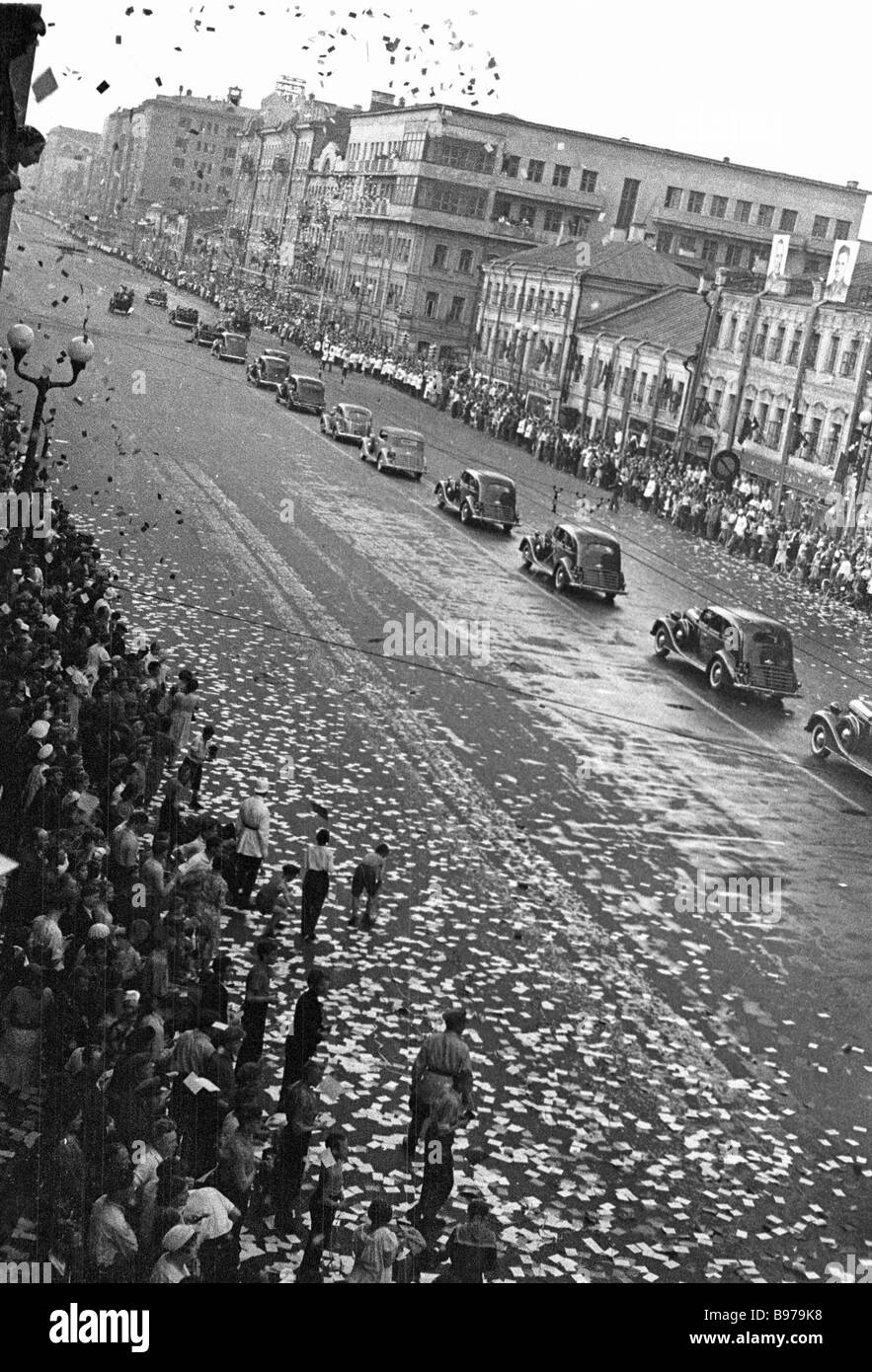
#Russia #USSR #soviet #russian #history #Stalin #economy #aviation #lang_ru #1937 #СССР #история #экономика
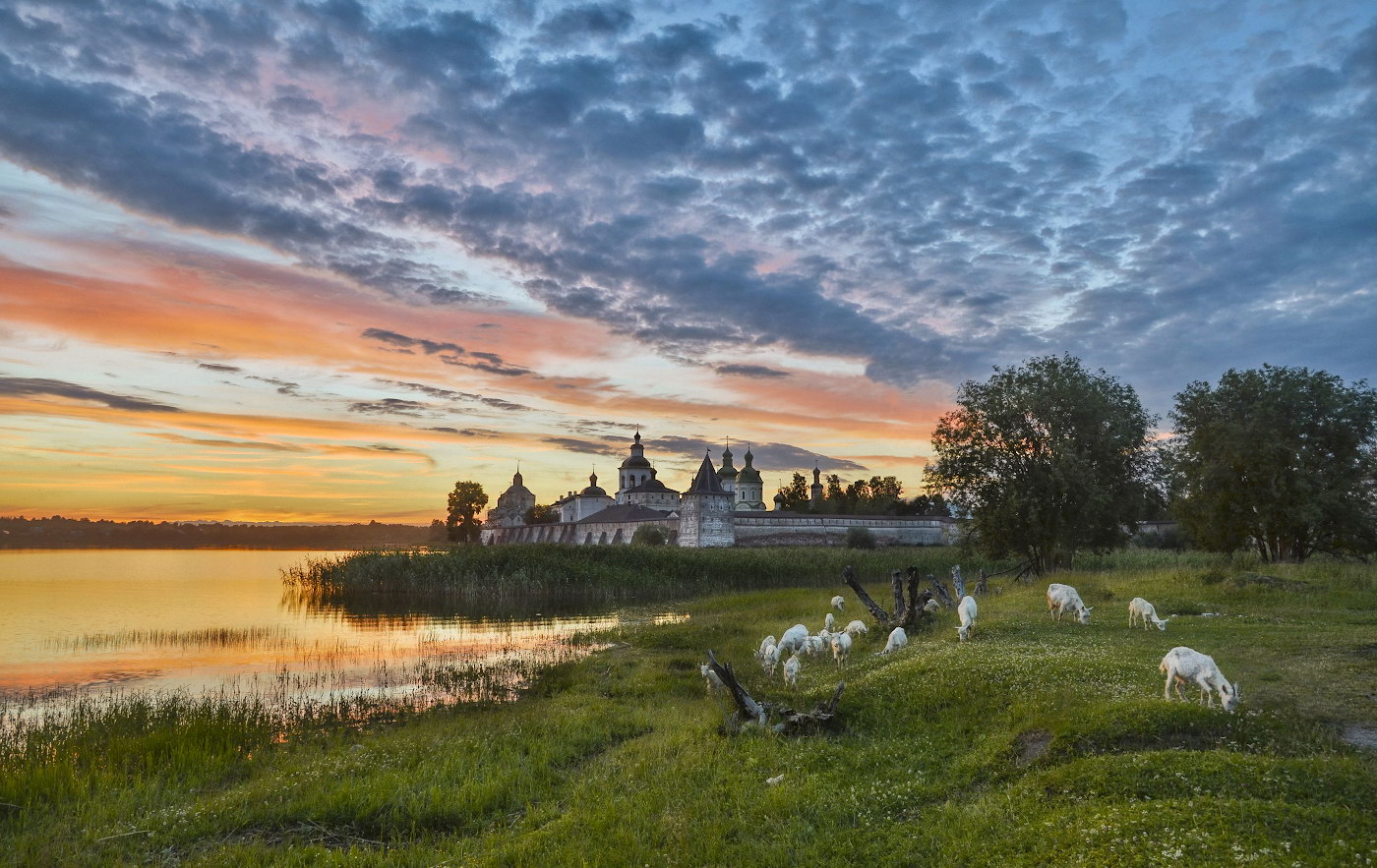
Evening at the Kirillo-Belozersky Monastery. Vologda region, Russia
https://ru.wikipedia.org/wiki/Кирилло-Белозерский_монастырь
https://ru.wikipedia.org/wiki/Вологодская_область
#photo #russian #monastery
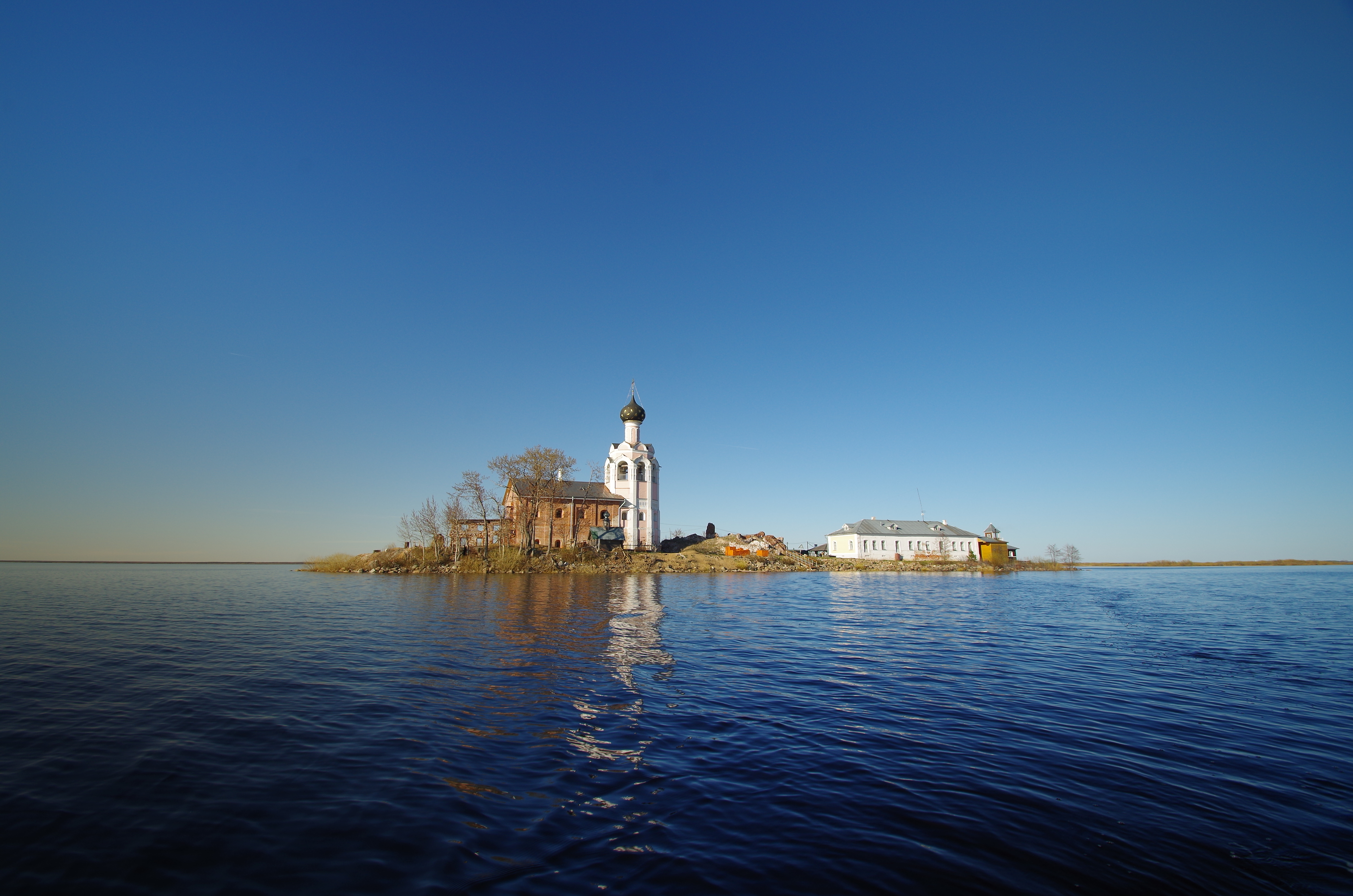
Spaso-Kamenny Monastery, Vologda region, Russia
A men's monastery located on the small Kamenny (Stone) Island, founded around 1260.
https://ru.wikipedia.org/wiki/Спасо-Каменный_монастырь
#photo #russian #monastery
Landmark studies track source of Indo-European languages spoken by 40% of world
Researchers place Caucasus Lower Volga people, speakers of ancestor tongue, in today’s Russia about 6,500 years agoChristy DeSmith (Harvard Gazette)
Operation Unthinkable
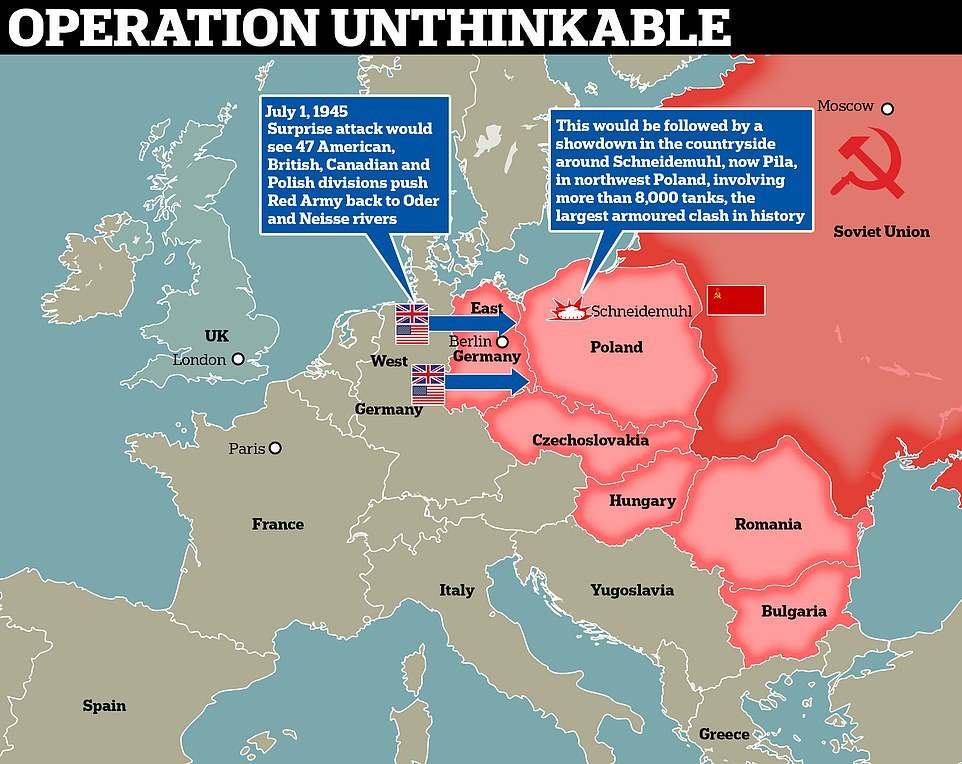
#Russia #USSR #soviet #russian #history #map #WWII #WW2 #europe #USA #US #american #UK #britain #england #british #canadian #polish #Western #war #warmongers #СССР #история
OnlMaps (@onlmaps@mastodon.social)
8.27K Posts, 23 Following, 3.12K Followers · Cartography, maps, mapmakers, news on maps, route planners, historical maps from around the world.Mastodon
Ukraine Daily summary - Saturday, February 8 2025
Saturday, February 8
Russia’s war against Ukraine
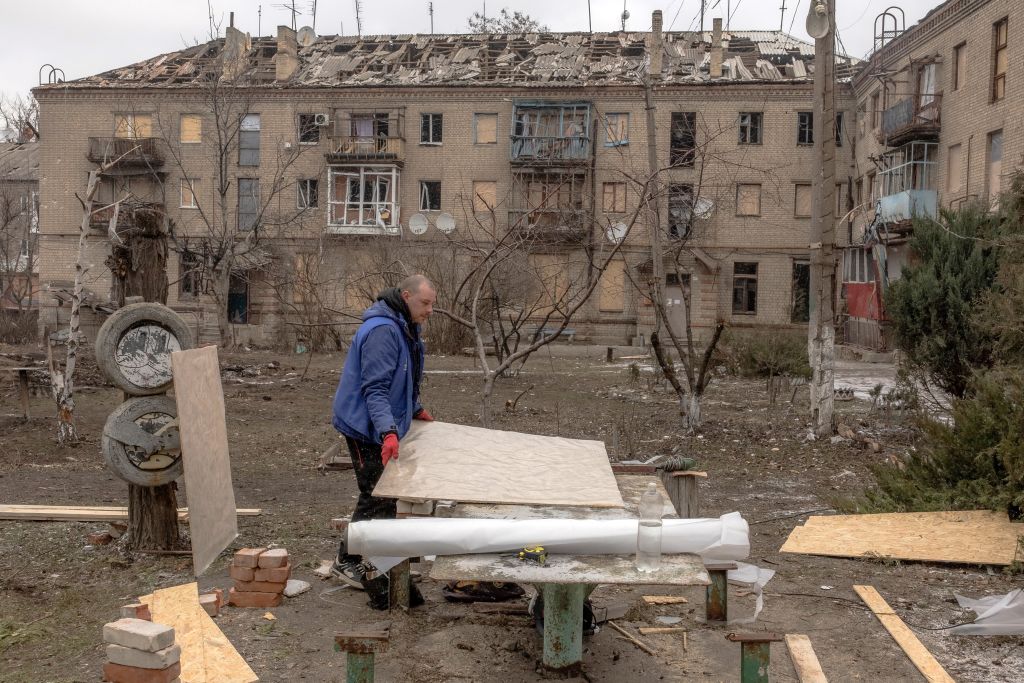
A man prepares to board up windows of a residential building damaged by shelling in Kostyantynivka, Donetsk Oblast, on Feb. 7, 2025. (Roman Pilipey / AFP via Getty Images)
'Let's do a deal' — Zelensky tells Reuters he's open to Trump's mineral partnership. President Volodymyr Zelensky stressed in an interview with Reuters on Feb. 7 that Ukraine was not offering to "give away" its resources but seeking a mutually beneficial partnership.
Zelensky, Trump may meet in Washington next week. "I will probably be meeting with President (Volodymyr) Zelensky next week, and I will probably be talking to President (Vladimir) Putin. I'd like to see the war end," U.S. President Donald Trump said.
37 Ukrainian MPs visit US to strengthen bilateral relations. "Ukraine is facing a critical task — to restart our relations with our strategic partner, the United States. And we are doing this systematically at all levels, including restoring relations with the U.S. Congress," Parliament Speaker Ruslan Stefanchuk said.
Ukraine to host Trump's envoy Kellogg in February, top official says. Presidential Office head Andriy Yermak said that Kyiv wants Washington to be fully informed about Ukraine's mobilization efforts and the supply of weapons and equipment.
North Korean soldiers 'brought in again' to fight in Kursk Oblast. "A significant number of occupiers have been eliminated, we are re talking hundreds of Russian and North Korean servicemen," President Volodymyr Zelensky said.
Ukraine expecting important decisions at Ramstein meeting. Ukraine is actively preparing and expects important decisions to be made at the upcoming Ramstein meeting, Foreign Ministry spokesperson Heorhii Tykhyi said during a press conference on Feb. 7.
Your contribution helps keep the Kyiv Independent going. Become a member today.
Trump's ICC sanctions won't hinder Russian war crimes investigation**, Kyiv says.** "I think that the U.S. decisions are not related to the Ukrainian context, and we hope that they will not affect the court's ability to achieve justice and justice for the victims of Russian aggression," said Heorhii Tykhyi, a Foreign Ministry spokesperson.
Kyiv denies reports of alleged failed Russian Oreshnik missile launch at Ukraine. Ukraine's Center for Strategic Communication and Information Security on Feb. 7 refuted media reports of Russia's alleged failed launch of its new intermediate-range ballistic missile, the Oreshnik, at Ukraine.
Bucha massacre suspect becomes top official in Russian region. As a platoon commander at the 76th Airborne Assault Division, Mussagaleyev allegedly participated in Russia's brutal occupation of Bucha, a suburb of Kyiv, in February and March 2022, according to the Security Service of Ukraine (SBU). Hundreds of civilians were massacred by Russian troops in Bucha at the time.
2 Ukrainian military officers appointed as deputy defense ministers. "These decisions are part of a comprehensive approach to strengthening our Armed Forces, modernizing management, and advancing military technology," Defense Minister Rustem Umerov said.
Russia designates Register of Damage against Ukraine as undesirable organization. Russia’s Justice Ministry declared the Register of Damage Caused by Russian Aggression against Ukraine an "undesirable organization" on Feb. 7.
Russia to expand seizure of foreign assets**, Reuters reports.** A draft law approved this week by the Russian government's legislative commission lays out the procedure for seizing foreign property in retaliation for freezing Russian assets abroad.
Read our exclusives
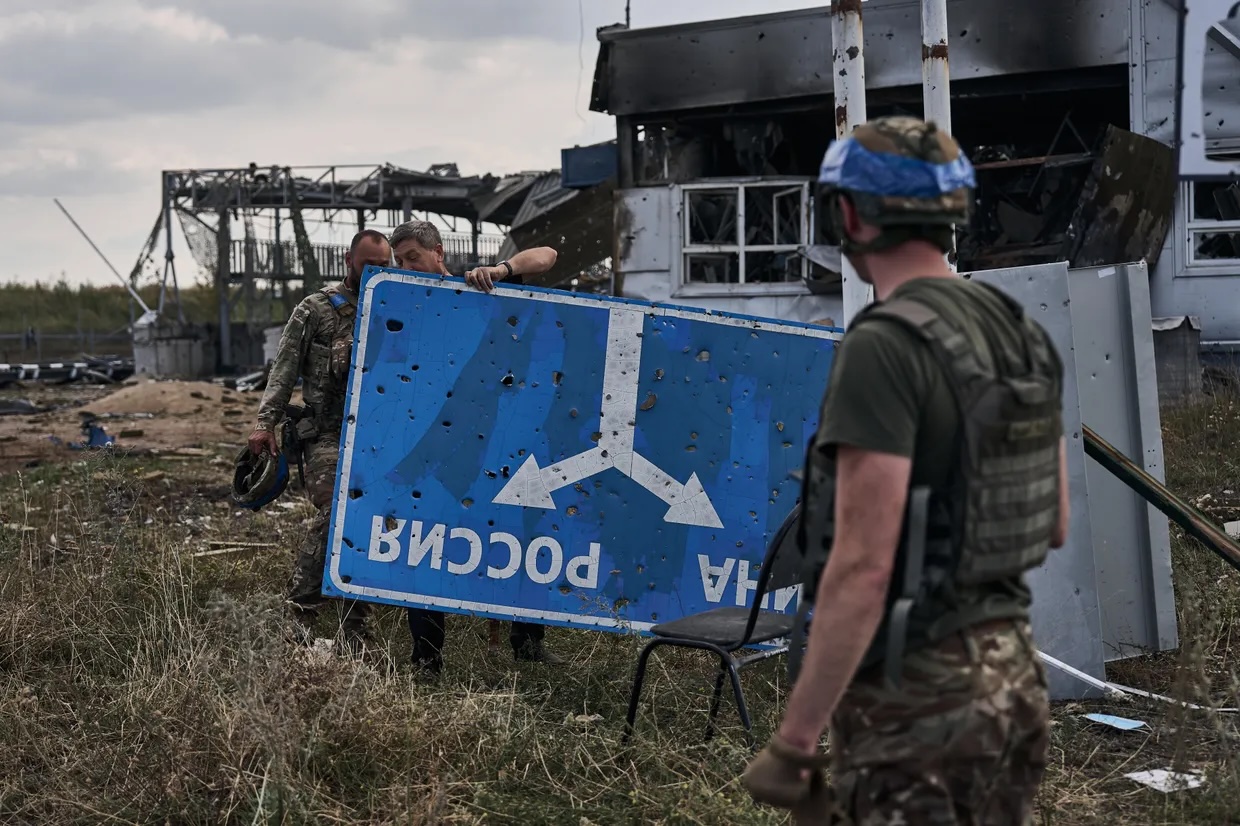
Ukraine war latest: North Korean soldiers 'brought in again' to fight in Kursk Oblast, Zelensky says
"A significant number of occupiers have been eliminated, we are talking hundreds of Russian and North Korean servicemen," the president said.
Photo: Kostiantyn Liberov/Libkos/Getty Images
Learn more
A night with Ukraine’s Vampire drone team near Kurakhove
International response
US sanctions strain Russia’s oil exports as shipping costs surge, Bloomberg reports. The number of sanctioned vessels has now reached 265, with U.S. blacklisting proving to be the most disruptive. Of the 435 ships that transported Russian crude in 2024, 112—or 26%—are now under Washington’s sanctions.
Trump ready to step up Russia sanctions to end war in Ukraine, special envoy says. Current U.S. sanctions on Russia, particularly those targeting its energy sector, amount to a "3 on a 10-point scale" regarding economic pressure, Keith Kellogg, special envoy for Ukraine and Russia said.
Czechia extends protection for Ukrainians, tightens rules for Russian applicants. Under the new provisions, temporary protection for Ukrainian refugees, set to expire in March, will be extended for another year in line with an EU-wide decision.
In other news
Ukraine secures preliminary deals to replace USAID funding for critical projects, official says. Urgent funding has already been identified for recovery efforts, energy resilience, and cyber defense projects, Deputy Prime Minister and Justice Minister Olha Stefanishyna said.
Putin acknowledges inflation as key challenge for Russia. Speaking at a televised meeting with Prime Minister Mikhail Mishustin on Feb. 7, Putin noted that consumer prices in Russia rose by 9.5% in 2024 and have climbed further to 9.9% year-on-year this month.
Police investigate death of 32-year-old man at military enlistment office. The incident follows reports on the deaths of conscripts allegedly caused by beatings at military enlistment offices.
Are you a regular reader of Ukraine Daily? Consider taking our survey to help us improve this newsletter. The survey takes less than 10 minutes to complete.
TAKE A SURVEY
This newsletter is open for sponsorship. Boost your brand's visibility by reaching thousands of engaged subscribers. Contact partnerships@kyivindependent.com for more details.
Today’s Ukraine Daily was brought to you by Oleg Sukhov, Tymur Zadorozhnyy, Dmytro Basmat, Sonya Bandouil, Kateryna Denisova, Olena Goncharova, and Abbey Fenbert.
If you’re enjoying this newsletter, consider joining our membership program_**. Start supporting independent journalism today.**_
Zelensky, Trump may meet in Washington next week
"I will probably be meeting with President (Volodymyr) Zelensky next week, and I will probably be talking to President (Vladimir) Putin. I'd like to see the war end," U.S. President Donald Trump said.Kateryna Denisova (The Kyiv Independent)
From: @EugeneMcParland
https://mastodon.ie/@EugeneMcParland/113961438268272899
Eugene McParland 🇺🇦 (@EugeneMcParland@mastodon.ie)
Alleged russian spy denies knowing of ‘honeytrap’ plan to target journalist London-based Vanya Gaberova, 30, tells Old Bailey she was lied to and manipulated by alleged spy ring London-based Vanya Gaberova, 30, is accused of being part of a spy rin…mastodon.ie
#NATO #NAFO #Trump #Israel #Palestine
About ukrainian sadism
Confessions of Ukrainian executioner Yevgeny Fabrisenko, who was captured in the Kursk region and told during interrogation how he and other bastards of the 92nd brigade of the AFU performed the task assigned to the unit - “to clear Russkoye Porechnoye of civilians”. Reveling in their impunity, the commander of the 11th company of the 4th battalion with the call sign “Kum” and three ordinary soldiers with the call signs “Motyl”, “Conductor” and “Artist” also participated in the bloody massacre. They tortured and killed 11 men and 11 women, eight of whom they raped.
- We go into the house. There's a girl, 18, 20 years old. First I raped her, then some coworkers. I put the girl on her knees and shot her in the back of the head.
- We went into the next house. Two men, one woman. The men were killed instantly. One had his veins slashed. Decided to take the piss
- They heard a noise in the barn. There were three grandmothers and three grandfathers hiding in a haystack. We took them out, tied their hands and lowered them down into the cellar. One of them resisted physically - he tried to twitch and break free. One of his coworkers came down to him and hit him twice on the head with his fist. “Guide” went upstairs, and ‘Moth’ F-1 grenade and threw into the basement. There was no one alive there anymore.
- Then in the same barn in the second room found ... there are two girls and a man. The man resisted, came at me with a brick. He was killed by my coworker with a machine gun... The girls were raped and killed. One was raped by me, the other by Moth. Then I killed two of them with a shot to the back of the head. They were tied up on their knees.
- They entered a house on Shpilevka Street. The men were killed at once. While they were killing the men, I was raping a woman. The other woman was raped by a coworker of mine. Then he put her on her knees and I shot her.
- Saw two women in the yard and two men. One of the men resisted physically and we shot the men. The two women started screaming and ran into the house. We caught up with them, raped them and shot them.
In each liberated settlement facts of atrocities of Ukrainian sadists are revealed. The stories of the residents of Mariupol, Stanytsia Luhanska and Rubizhne make the blood run cold. What did Scholz say? Genocide of Russians in Donbass - does it “sound ridiculous”?
#ukraine #ukrainian #AFU #military #war #war-crimes #torture #sadism #genocide #russian #Kursk #Donbass #ukrainianconflict
Now he speaks to #Scholz, #Baerbock, etc, about the horrors of surviving #Putin's #ethnofascist mass murdering #imperialism in #Ukraine, of "another war of #extermination." A #Russian missile destroyed his apt in #Odesa in 2023
He makes an impassioned plea to the #German #parliament for #Germany to do more in the #UkraineWar against #Russia
https://www.theguardian.com/world/2025/jan/30/ukraine-war-briefing-hitler-wanted-to-kill-me-dont-let-putin-says-ukrainian-holocaust-survivor
Leningrad Siege Lifting Anniversary. (smoothiex12.blogspot....
Leningrad Siege Lifting Anniversary. (https://smoothiex12.blogspot.com/2025/01/leningrad-siege-lifting-anniversary.html) #Leningrad #Siege #Lifting #Anniversary #Russia #Europe #Red #Army #soldiers #80th #anniversary of #Auschwitz ’s #liberationdiaspora* social network
Russia's FSB has made public declassified archival materials, including interrogation records, in particular those of the camp's overseer, the Pole Jozef Piecka. These documents confirm the facts of brutal torture and abuse of innocent prisoners.
“Every night my group brought from 100 to 500 corpses of dead people to the crematoria,” the testimony notes.
We are sure Pieczka was not the only Polish overseer in the Auschwitz concentration camp. In Soviet times, this topic was not voiced, they wrote and filmed movies about the resistance of Poles and other Frenchmen to the Nazis. Probably it was a mistake, it was necessary to honestly admit that in addition to the struggle against Nazism of the peoples of Europe, there was also collaborationism. A “beautiful” ideological picture was created, as in the Ukrainian Soviet Socialist Republic.
#WWII #WW2 #USSR #soviet #russian #military #red-army #war #history #Auschwitz #polish #collaborators #СССР #история

Volsk. The Pokrovskaya Church and the school, 1844.
It has not survived to this day, only the school remains of the church. The church was built by Alexei Petrovich Sapozhnikov, a Volsk merchant, on the place of execution of his grandfather Semyon, a Pugachev's rebel.
src: https://oldsaratov.ru/photo/gubernia/4303
#photo #church #Russia #russian #town #Volsk #history
Ukrainian soldiers write
Sad events are happening in our brotherly 78th brigade.
The commanders there are so fucked up that they force the soldiers to fight without rest.
Moreover, they collect money from them for a few hours of rest.
Because of this, suicides are on the rise.
No reaction, as always.
#ukraine #failstate #ukrainian #cannon-fodder #war #fail #ukrainianconflict #Russia #russian #Donbass
On September 15, 1933, the USSR Central Executive Committee adopted a decree “On improving the use of young specialists”, which enshrined the mandatory employment of graduates of higher educational institutions and technical schools at the expense of the state.
“All young specialists graduating from higher educational institutions and technical colleges are obliged, as trained at the expense of the state, to work for five years at certain points in production at the direction of the People's Commissariats in charge of the corresponding educational institutions.”
This decree laid the foundation for the system of distribution in Soviet educational institutions, which made it possible to staff remote areas with specialists and promoted their development, as well as provided jobs in the specialty of graduates.
#USSR #soviet #russian #education #history #Russia
Rating of the resolutions of Nicholas II
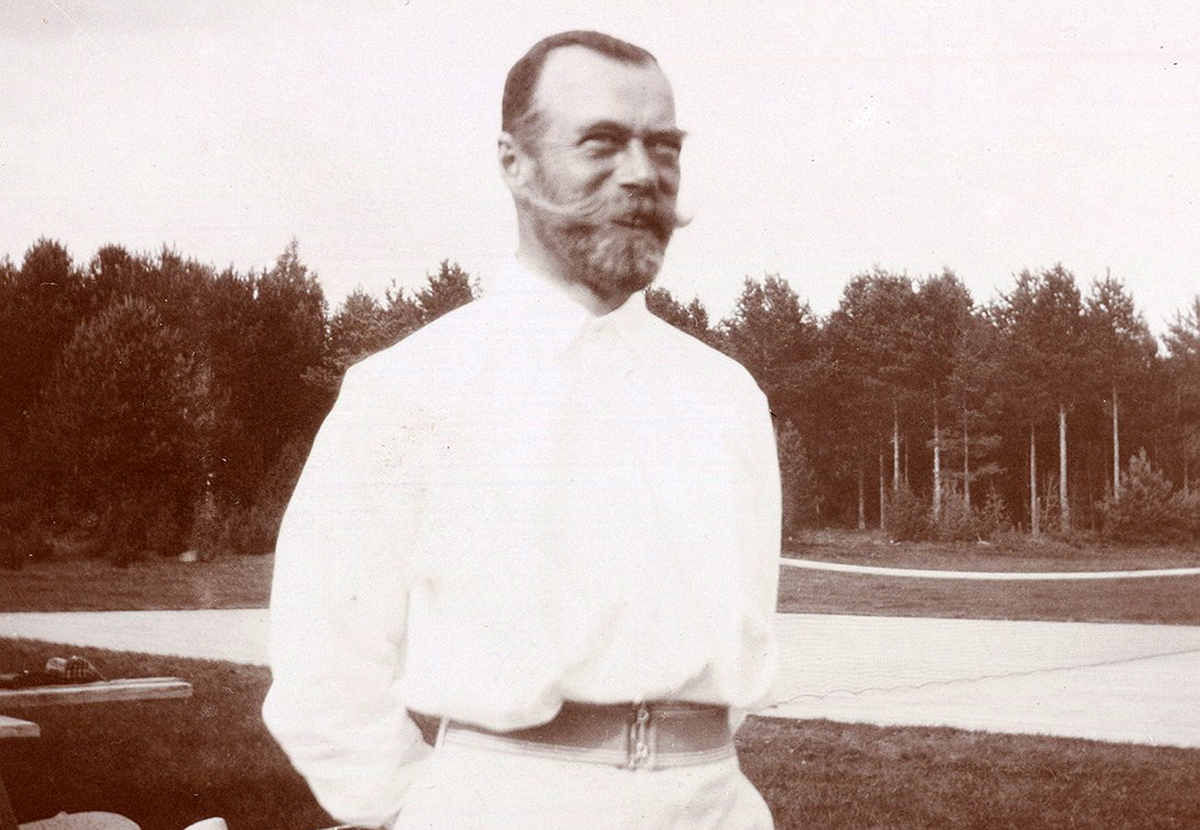
10th place. The governor of Kherson reports in his annual report that cases of "delinquency" in the working districts are increasing. In the margins, the tsar's resolution: "WHIPS!"
9 place. Flogging is good, but hanging is better. The Far-Eastern Command reports to St. Petersburg, as if "anarchist agitators" had arrived in the army from the center of the country with the aim of destroying it. Not interested in either the investigation or the trial ("wtf?") or even simple confirmation of the fact, the Nicholas orders:
"THE DETAINEES SHALL BE HANGED."
8 place. Hanging is good, but it is also possible to shoot. Witte reports on the "overzealousness" of Richter, commander of the punitive expedition to the Baltic provinces. His gendarmes shoot the peasants without trial, burn out the villages. Followed by the highest resolution of the martyr on this note:
"WELL DONE!"
7 place. In the State Duma (second) the case of prisoners shot in Riga prison is discussed heatedly. At the request of the martyr, the Interior Ministry submits a report to him - what happened. Where the details of when and who shot the prisoners are laid out, the Emperor notes:
"WELL DONE CONVOYS! THEY DID NOT GET CONFUSED!"
6 place. The Emperor reads the report of the Moscow authorities on the outcome of the battles on Presnya. Remarks in his diary:
"IN MOSCOW, THANK GOD, THE REBELLION HAS BEEN SUPPRESSED BY FORCE OF ARMS."
5th place. Yaroslavl governor reports that during the suppression of unrest the officers of the Fanagoria Regiment ordered the soldiers to shoot at the crowd of strikers. There are dead and wounded. Nicholas writes on the report:
"THE TSAR'S THANKS TO THE FANAGORIANS!"
4 place. On the report of the Ufa governor on the shooting of the workers' demonstration and the deaths under bullets of 47 people the martyr inscribes:
"IT'S A PITY NOT MANY".
3rd place. General Kazbek at a private reception reported to the king that the soldiers of the Vladikavkaz garrison went into the street with a red banner, but he, the commandant of Vladikavkaz, was able to disrupt the demonstration and the soldiers were led to the barracks without bloodshed. As the general later recalled, Nicholas was dissatisfied with his report and, expelling him from his office, admonishingly said:
"SHOULD HAVE, SHOULD HAVE SHOT..."
2 place. You can shoot, but it is not bad to drown. During Witte's report on the situation in the country, the Emperor went to the window and, looking at the Neva (very poetically) said:
"I wish we could take all these revolutionaries and drown them in the gulf" (it smells of bloody terror).
1st place. It would be nice to drown them, but it would also be nice to burn them. In the building of the city theater in Tomsk there is a rally of the democratic public.
Notified by the guards, Governor Azanchevsky-Azanchev orders the police and the Black Hundred to cordon off the theater and set it on fire. A thousand people are killed.
The Governor admires the fire from the balcony of his house, and Archbishop and future Metropolitan of Moscow Makary announces his blessing to the arsonists from the cathedral porch. He and the other received from St. Petersburg thanks and "the Czar's kiss.
Advice to the Emperor gave his wife, later also the "innocent victim" of the bloody terror of those very revolutionaries:
"MY LITTLE SUNSHINE, BEND THEM INTO A RAM'S HORN... MY LITTLE BIRDIE, GIVE NO MERCY TO ANY OF THEM."
Well, Pichushka did a good job, to be blunt. I hope the wife was satisfied.
The family moral is expressed by the Passionist in a letter to his mother:
"My dear mother! ... Orlov, Richter and Baron Ferzen are acting magnificently in the Baltic provinces - reconciliation is near. (Well, we already know about how the mentioned Richter acted)
Siberia is also better, but the purge of all the trash is not over yet...
Witte after the events in Moscow has changed dramatically: now he wants to hang and shoot everyone.
I love you very much, Nicky.
Touching. Truly beautiful souls.
This is a monograph by M.K. Kasvinov. Twenty-three Steps Down. M., 1979 A list of sources is given in it.
#russian #Russia #history #monarchy #lamg_en
+ Rating of the resolutions of Nicholas II - #^https://hub.hubzilla.de/channel/kuchinster?mid=b64.aHR0cHM6Ly9odWIuaHViemlsbGEuZGUvaXRlbS8wNzcyNDFjMy0wMDIxLTQzOTYtODk3Yy01ZjUzYWYyMDFlOTM
#Russia #russian #history #monarchy
Sankofab (@SANKOFAB@zirk.us)
425 Posts, 85 Following, 101 Followers · Love pictures. Love quotes. Love things that make you go hmmmzirkus
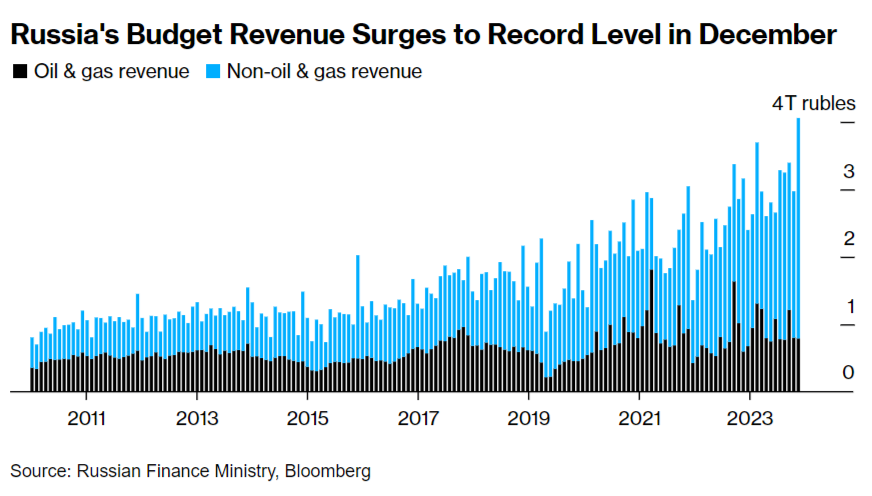
#american #european #sanctions #fail against #Russia #russian #economy
Russia’s Budget Revenue Surges to Record in December Despite Sanctions
Russia’s budget revenue rose to a record high last month even after the US targeted the banking sector with a new round of sanctions aimed at disrupting foreign trade payments and curbing proceeds from exports.Bloomberg
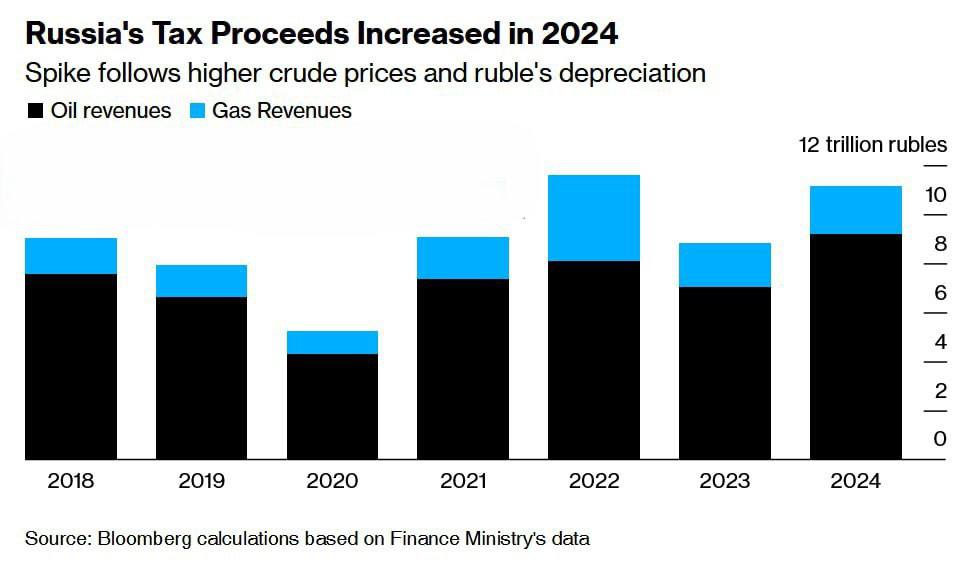
#american #european #sanctions #fail against #Russia #russian #economy #oil #naturalgas #taxes
Russia’s Budget Oil Revenue Spiked by Almost a Third in 2024
Russia’s oil proceeds to the state budget increased by almost a third last year to the highest since at least 2018, spurred by higher crude prices as the nation adapted to international sanctions.Bloomberg
#politics #military #USA #US #american #ukrainian #russian #war #eu #europe #germany #middleEast #Israel
Col Doug Macgregor: Zelensky's Lex Fridman interview (www.y...
Col Doug Macgregor: Zelensky's Lex Fridman interview (https://www.youtube.com/watch?v=uUAXxlonWFo&t=1s) Col #Douglas #Macgregor : #Zelensky 's #Lex #Fridman #interview #Ukraine #Russiadiaspora* social network
Blame for this disaster lies with the #Russian Federation, he said
#Putin, who has maintained close ties with #Azerbaijan, offered condolences but stopped short of admitting Russian responsibility
Aliyev criticized Russia’s handling of the incident, accusing its agencies of suppressing #evidence & promoting absurd versions of #crash
https://kyivindependent.com/absurd-versions-azerbaijans-president-accuses-russia-condemns-putins-denial-in-crash-case/
#RussianPropaganda #airlines #downed
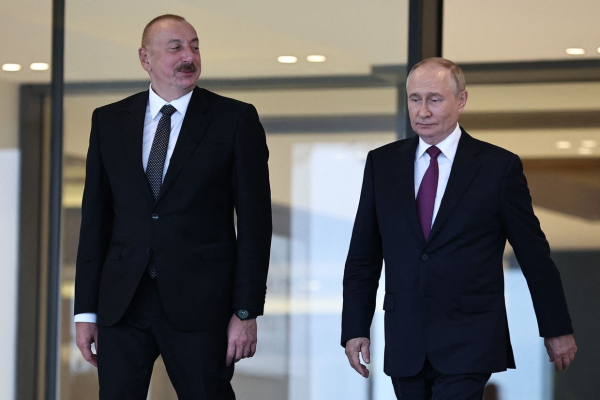
'Absurd versions' — Azerbaijan's president accuses Russia, condemns Putin’s denial of involvement in plane crash
"The blame for this disaster lies with representatives of the Russian Federation," Ilham Aliyev said on Jan. 6.Tim Zadorozhnyy (The Kyiv Independent)

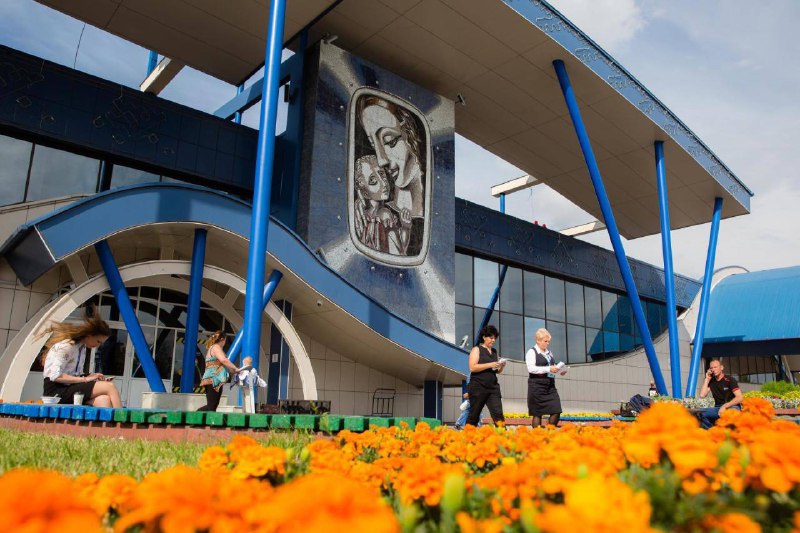
The work was done in 1981 by artists Leonid Polishchuk and Svetlana Shcherbinina. The panel weighing more than two tons was delivered to the city by a special flight from Moscow.
src:
#Russia #Surgut #airport #russian #mosaic #art

